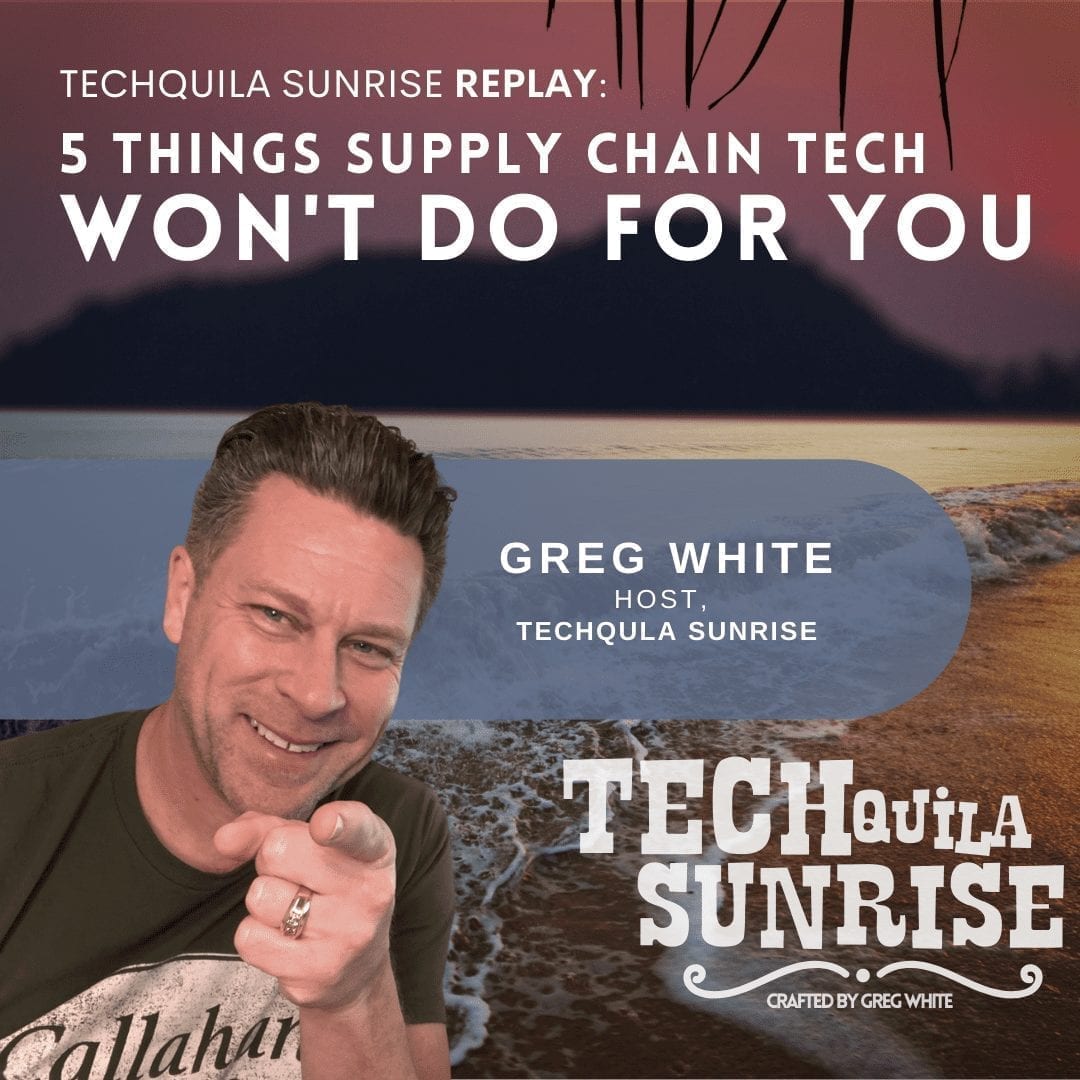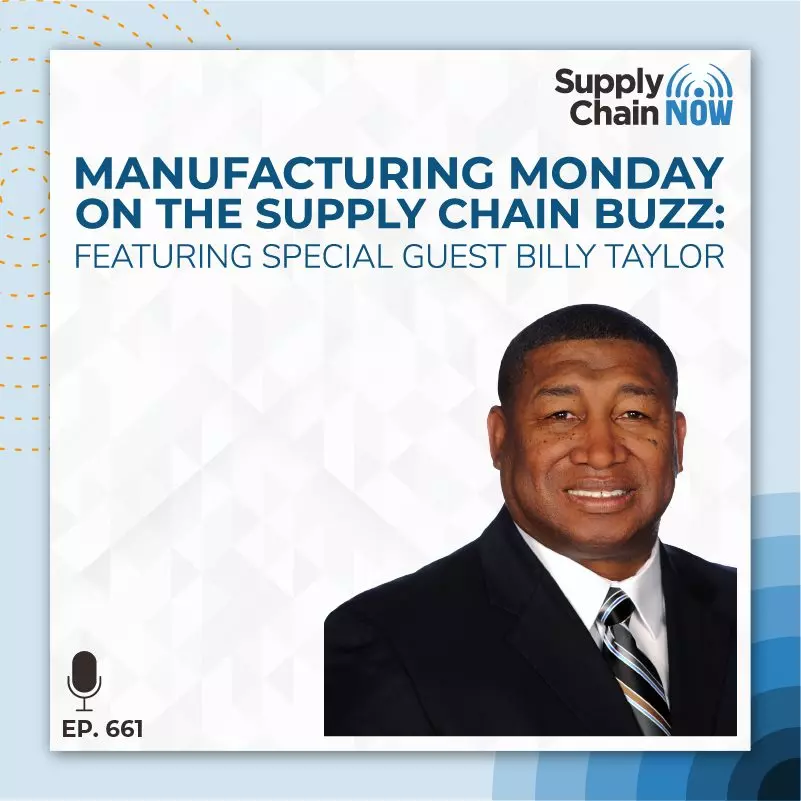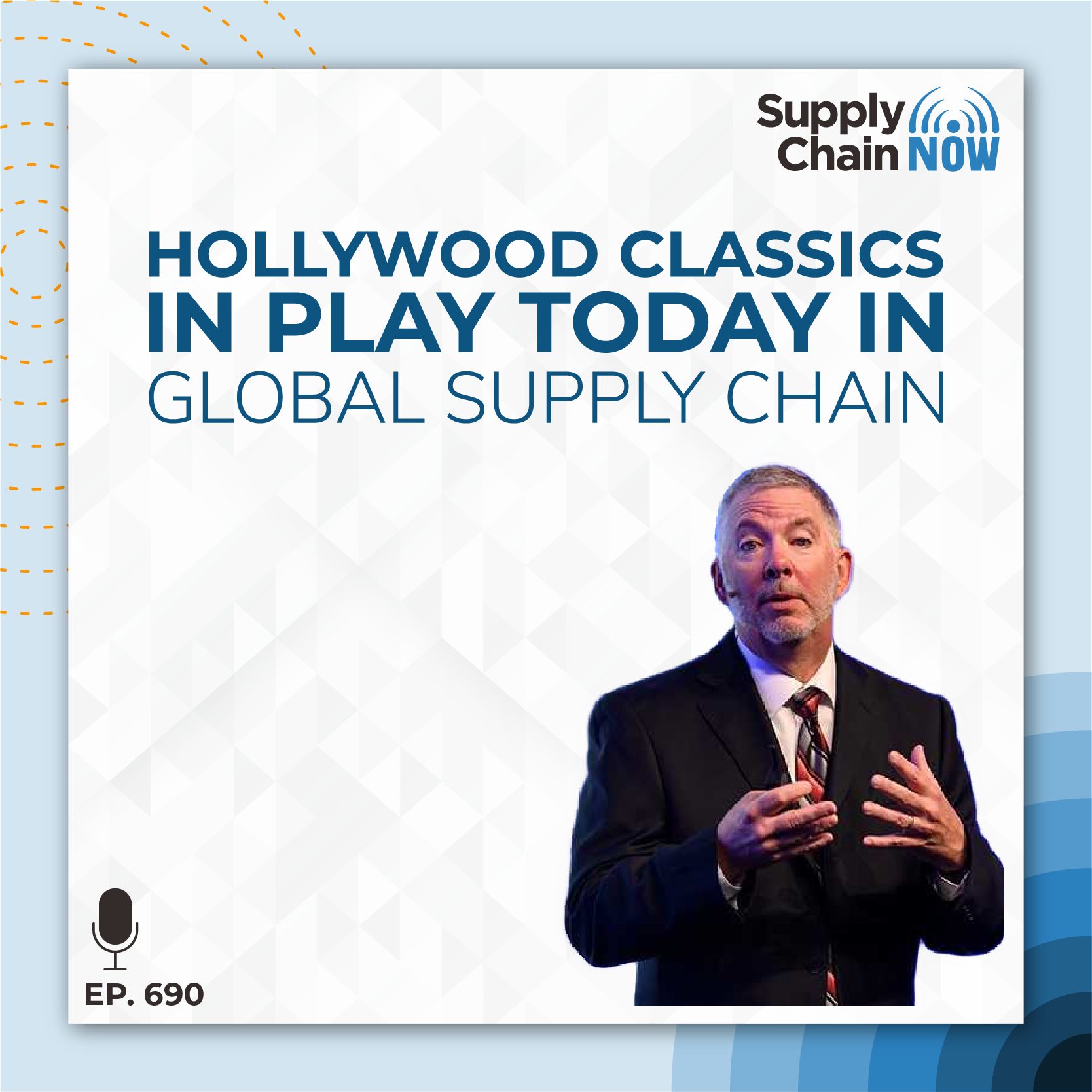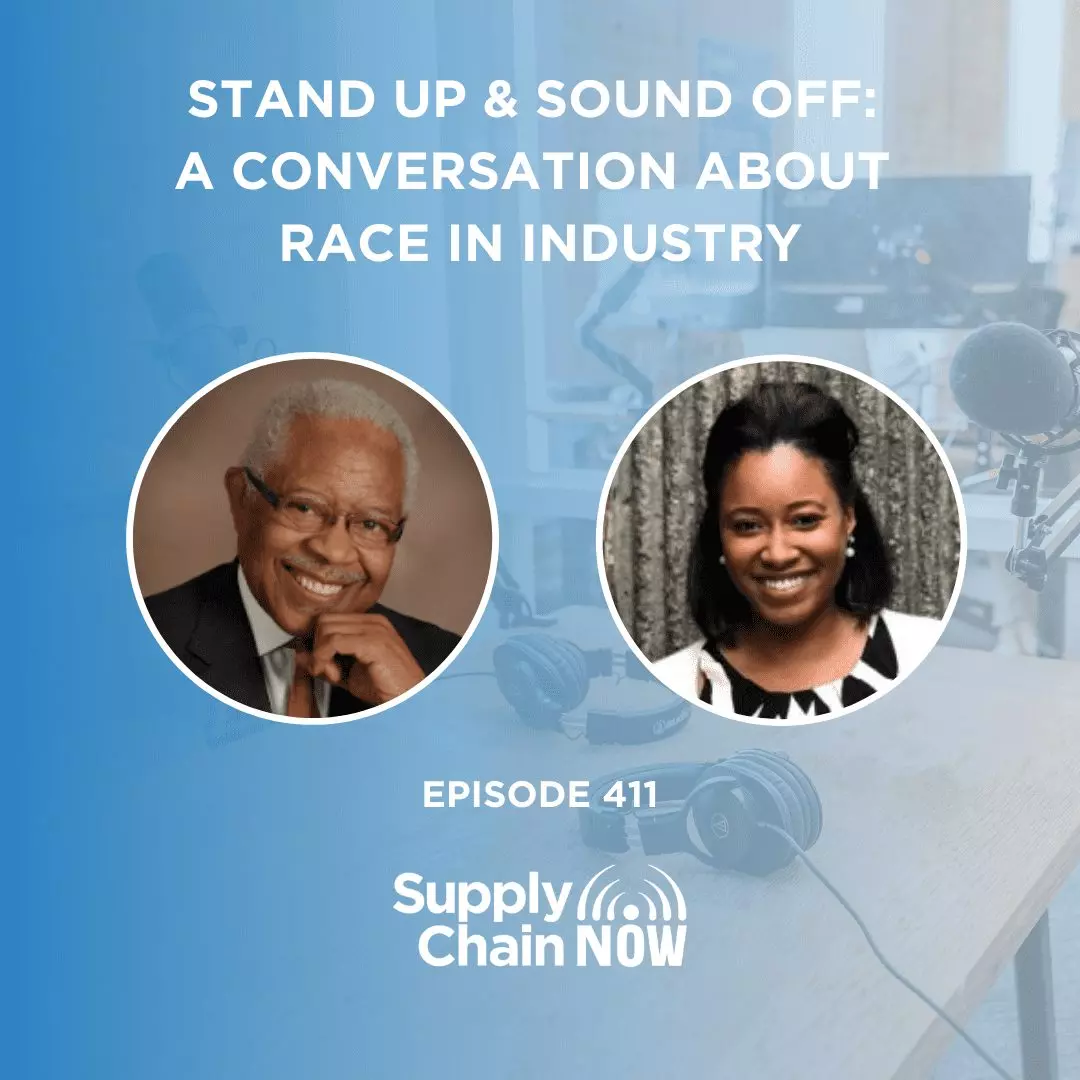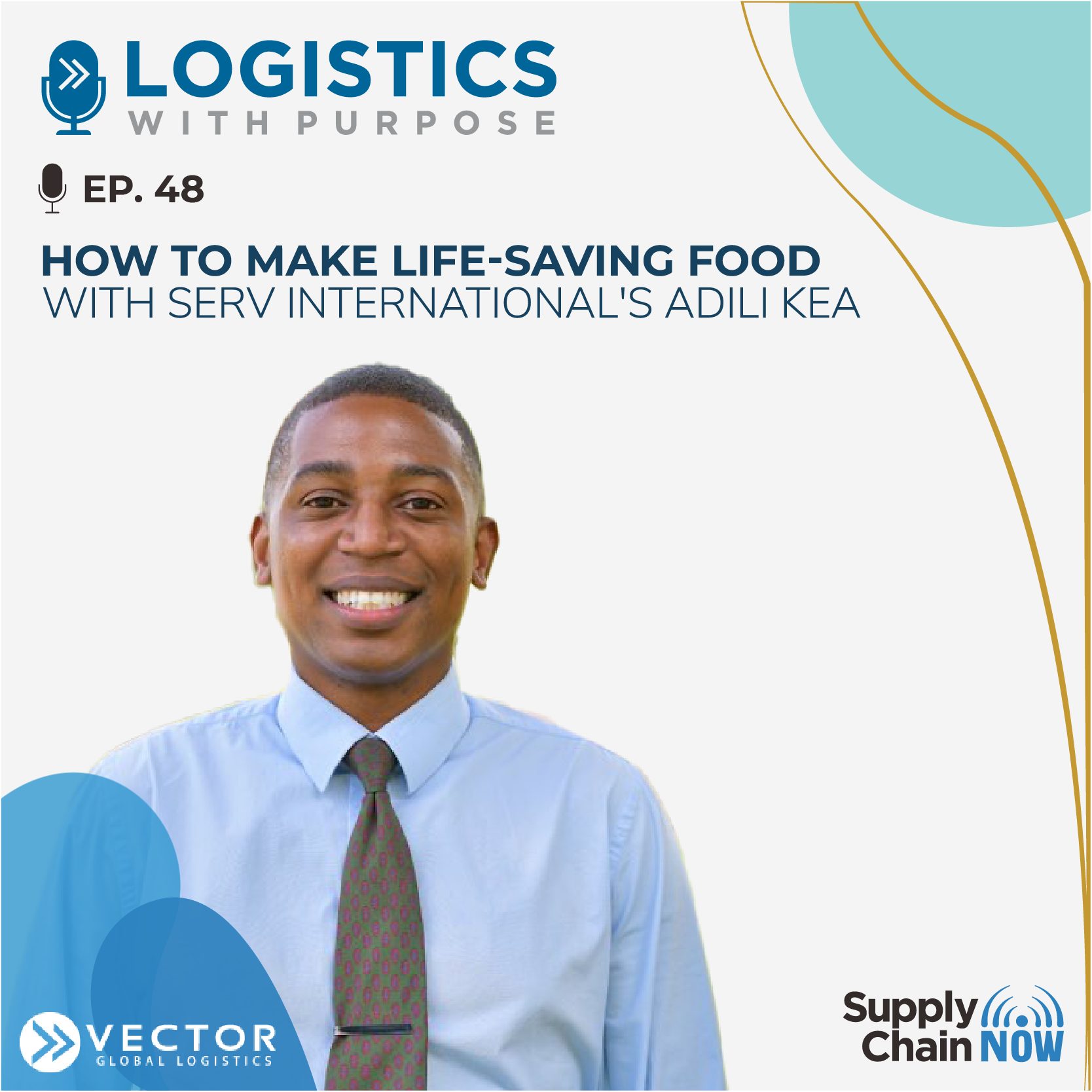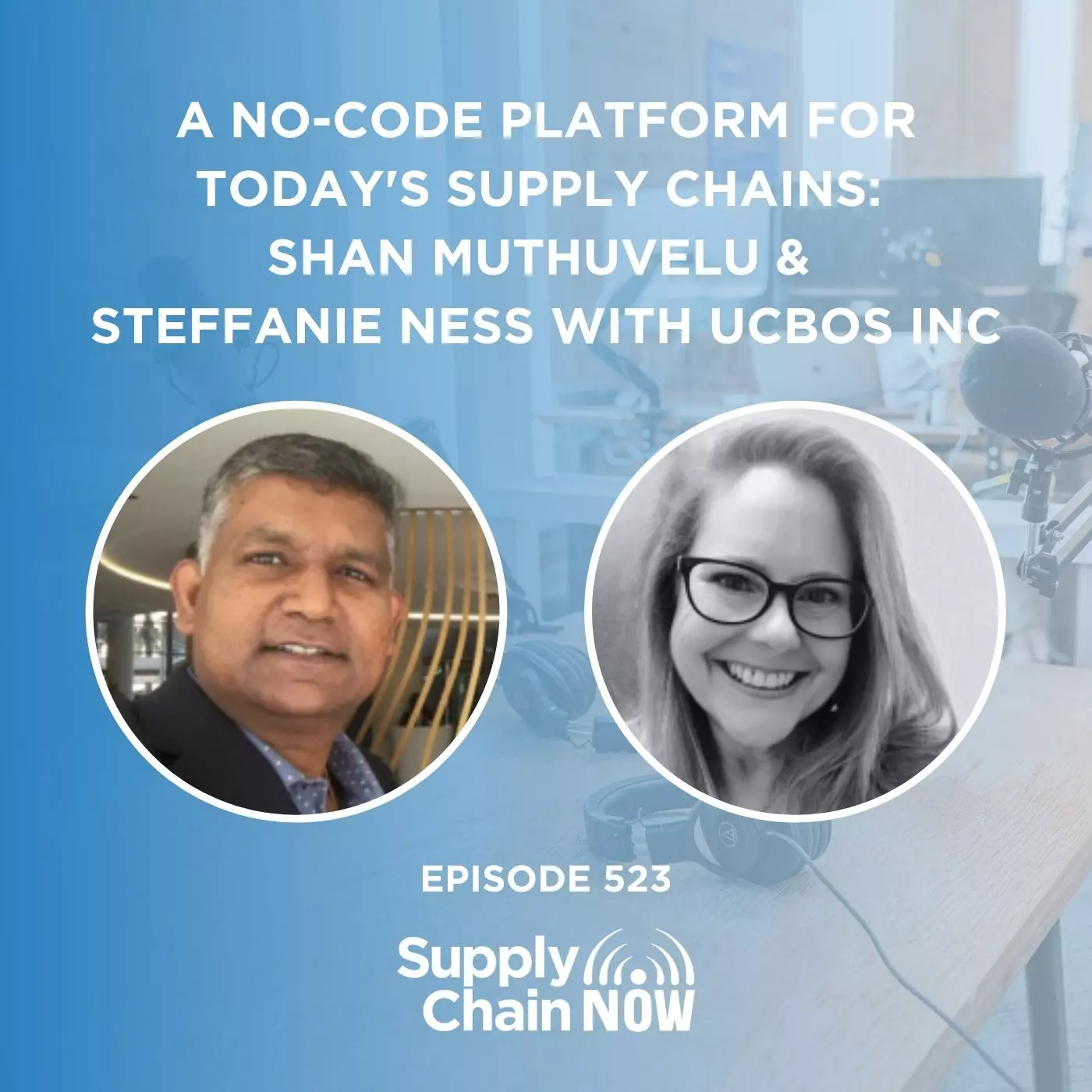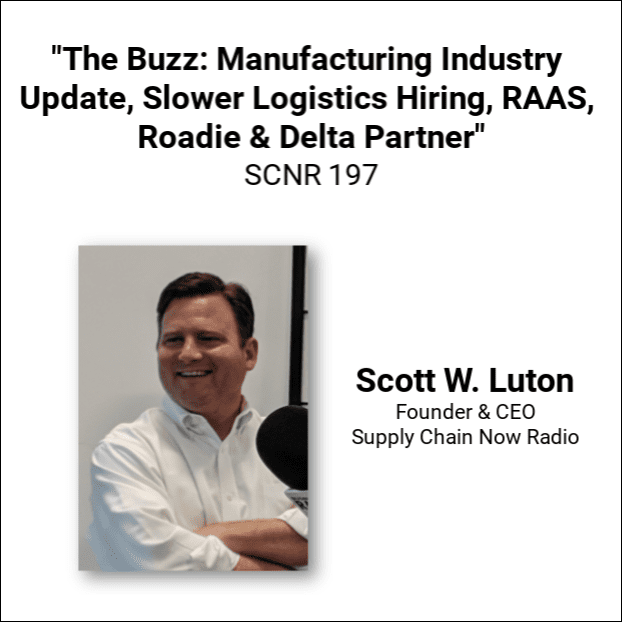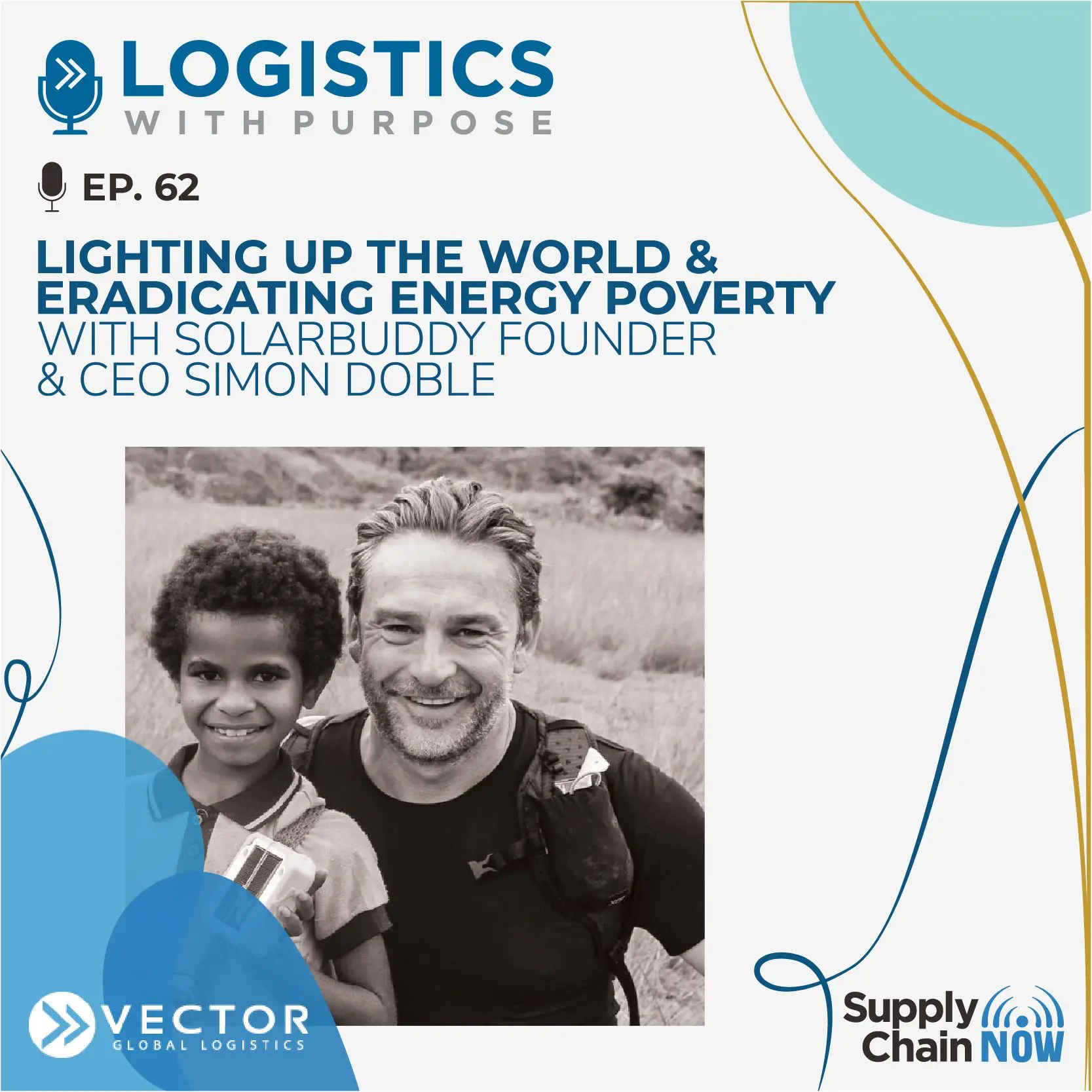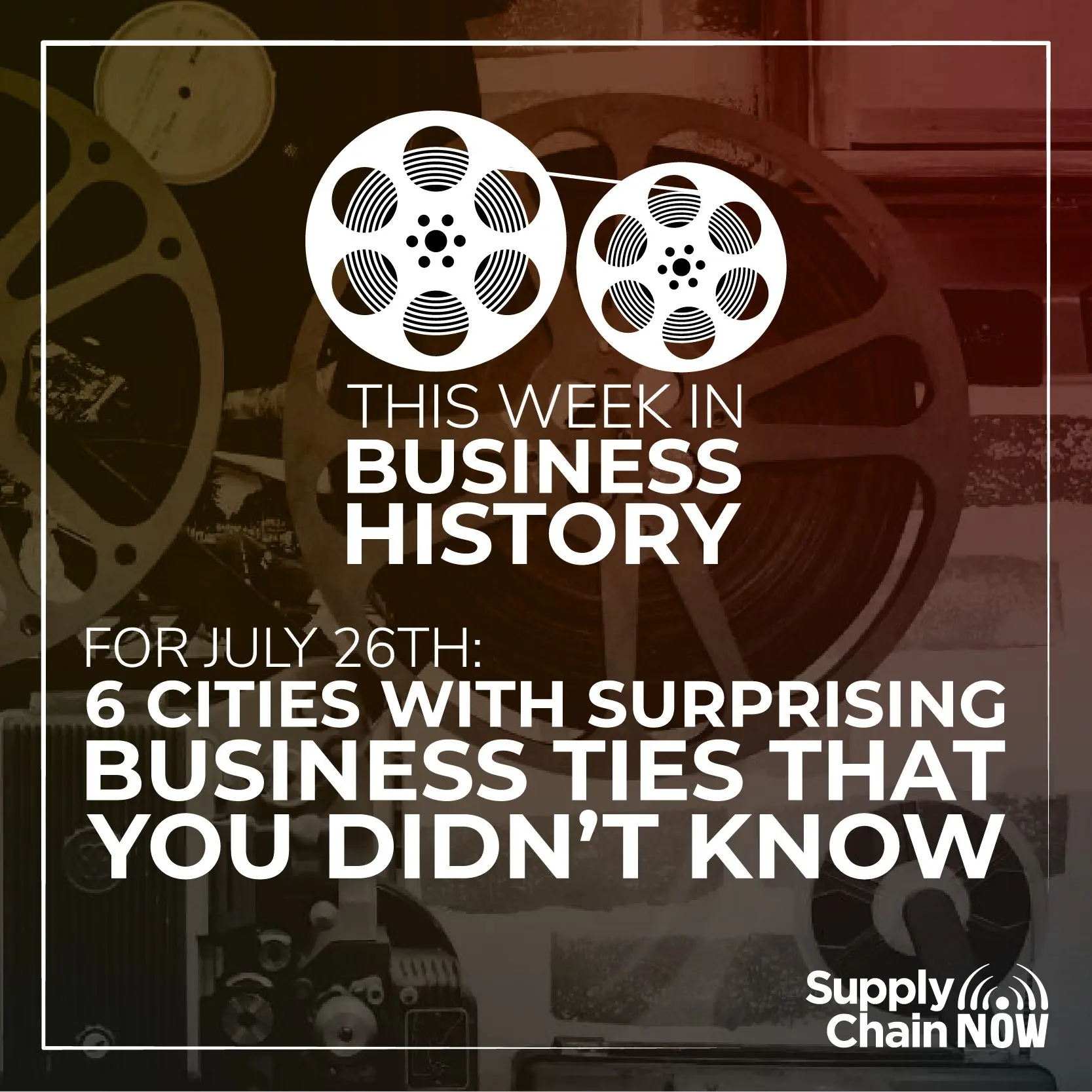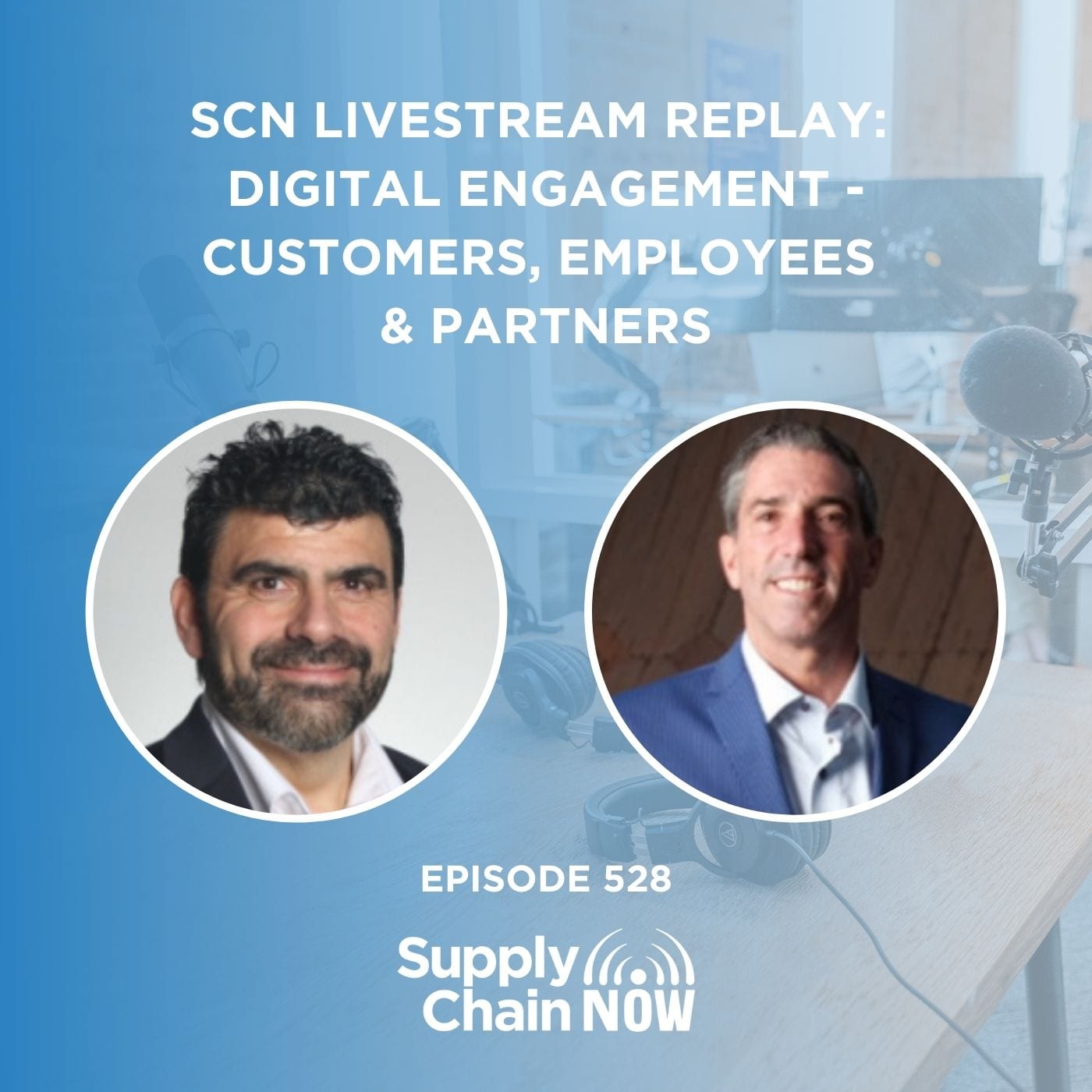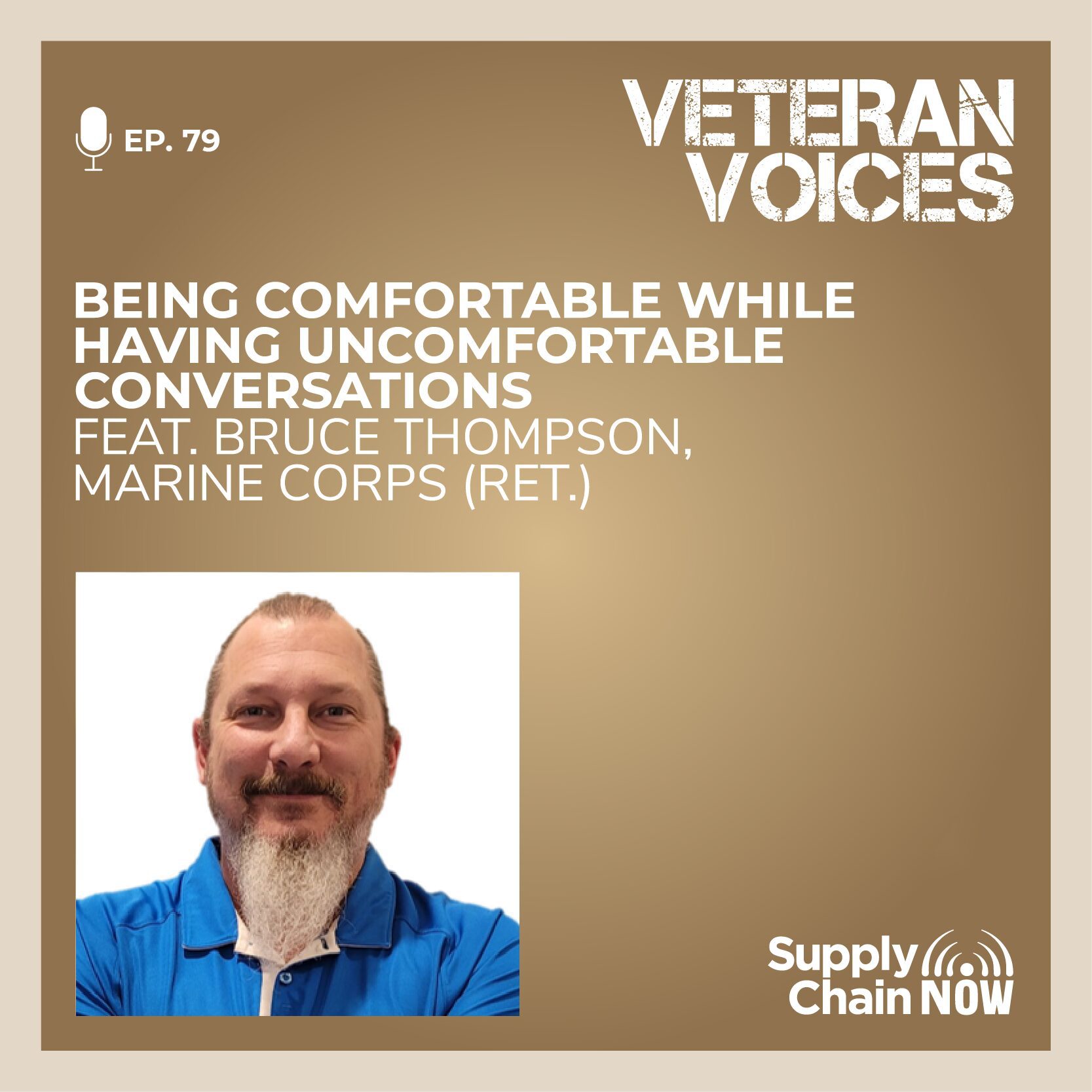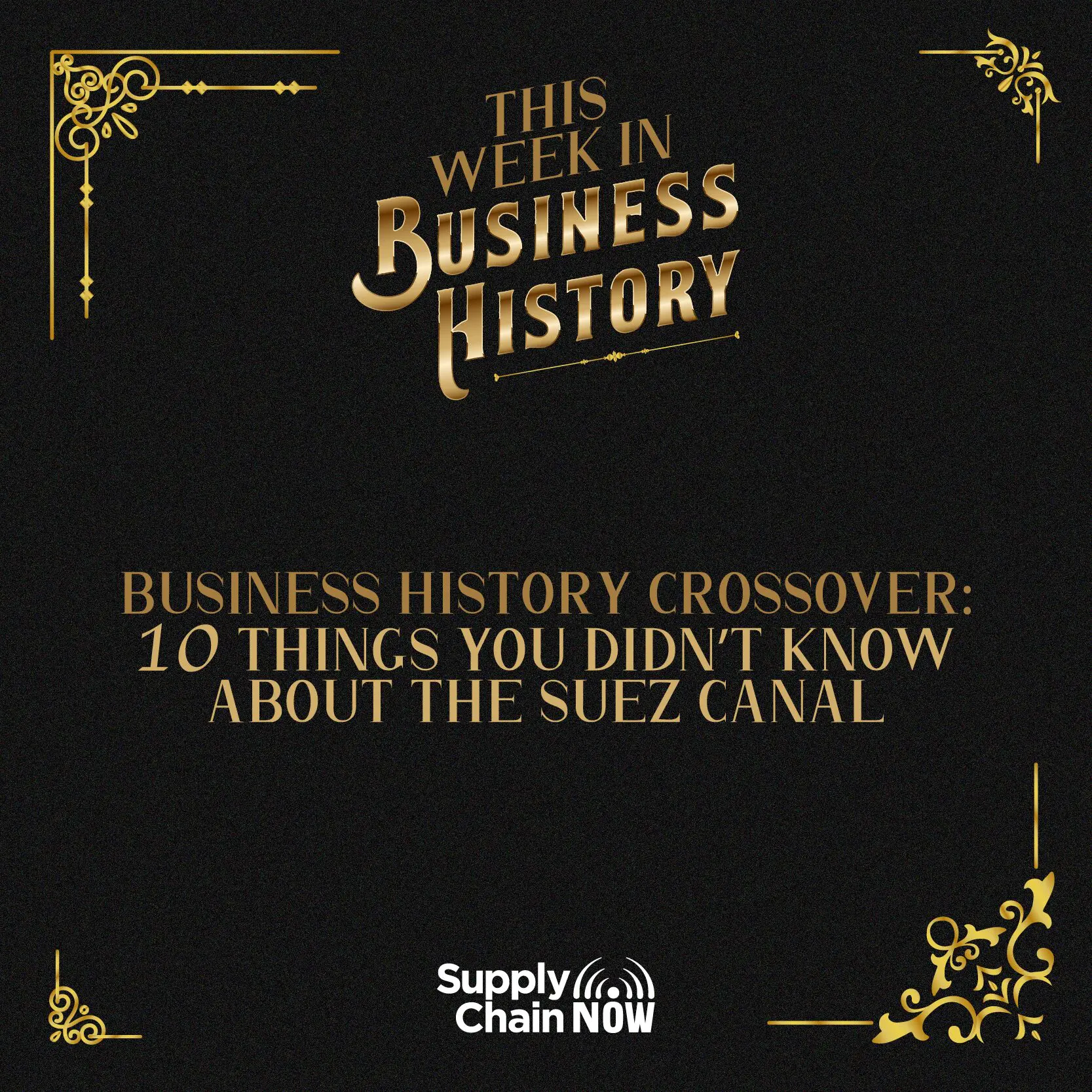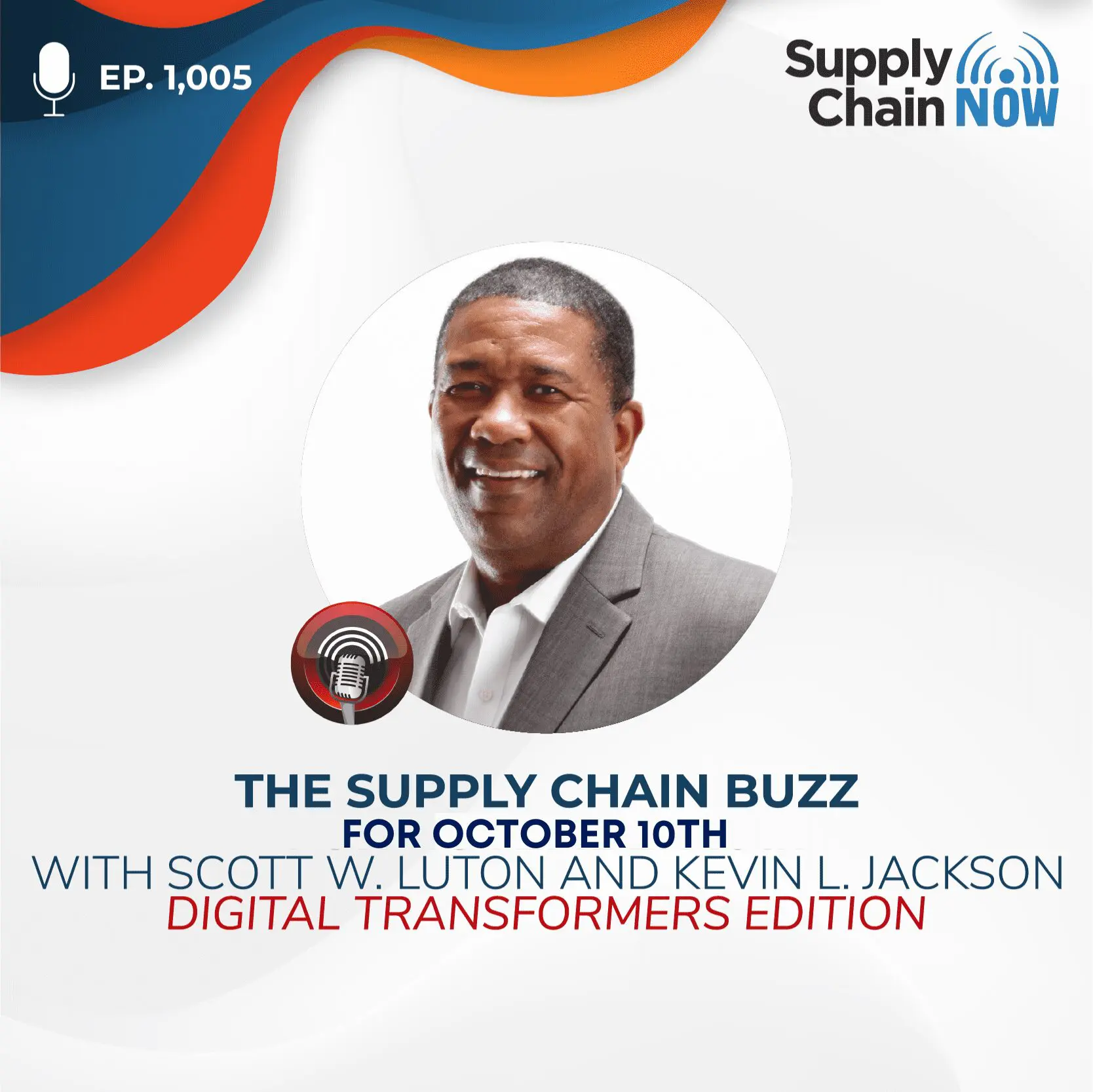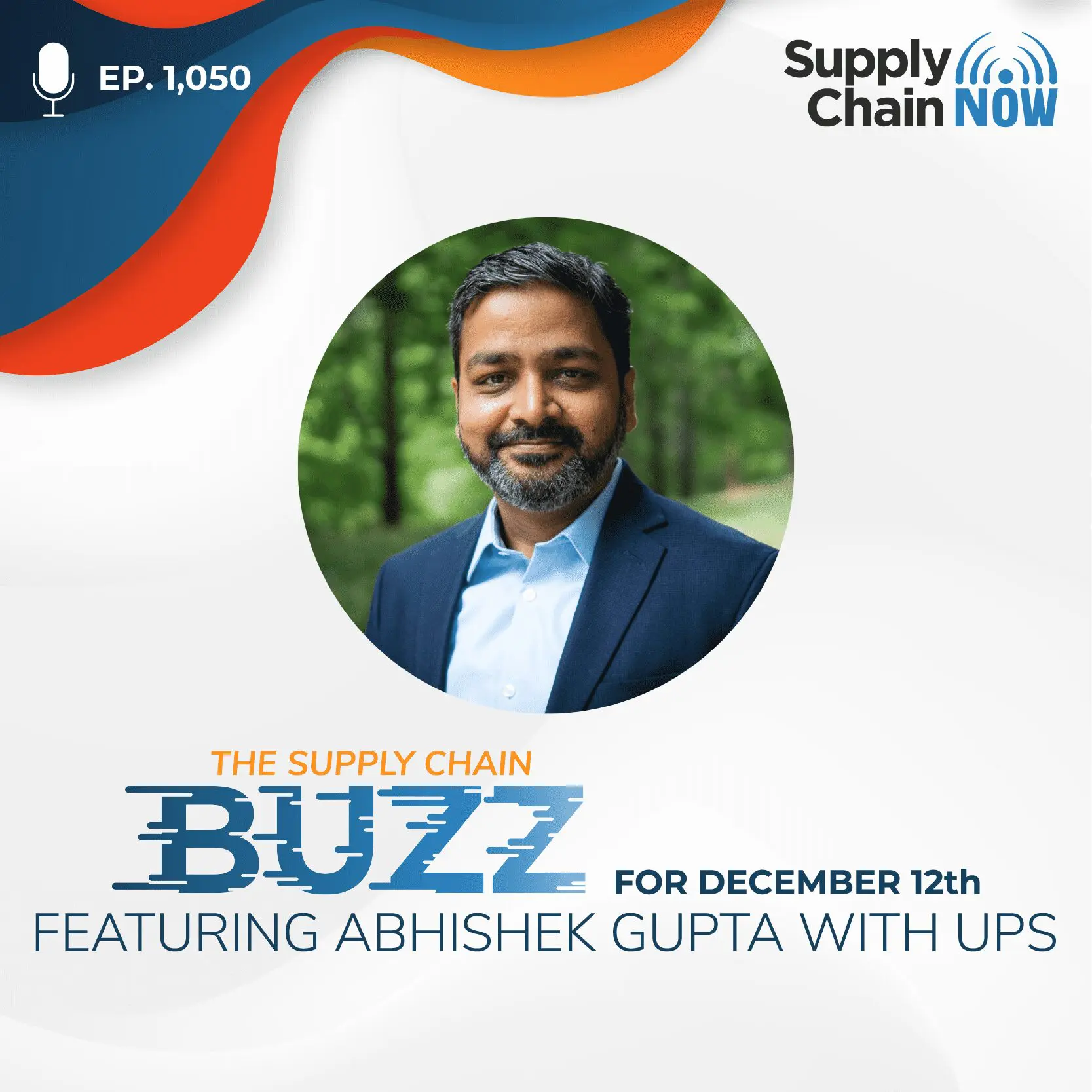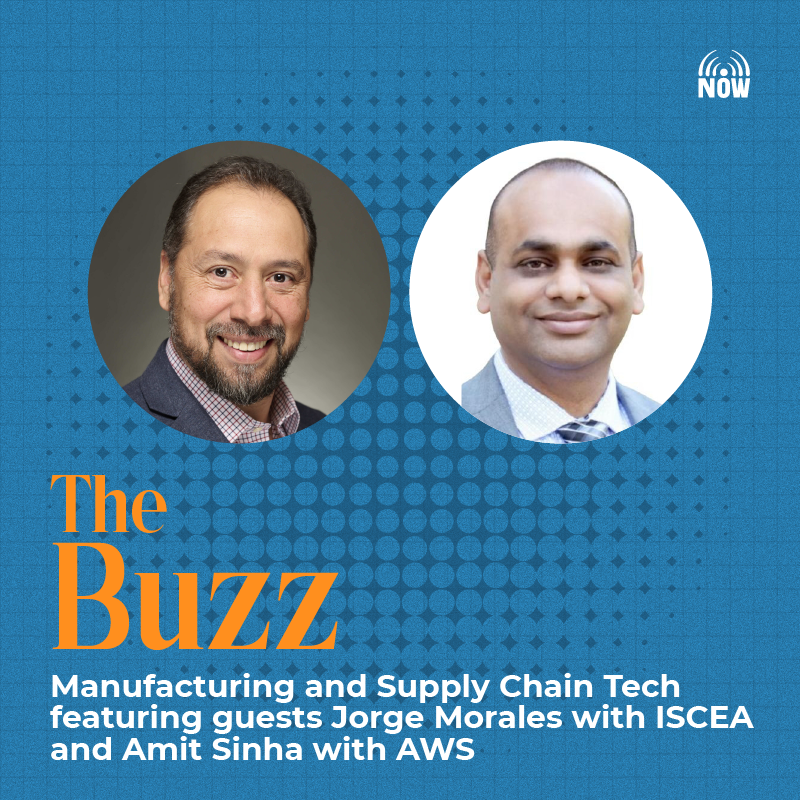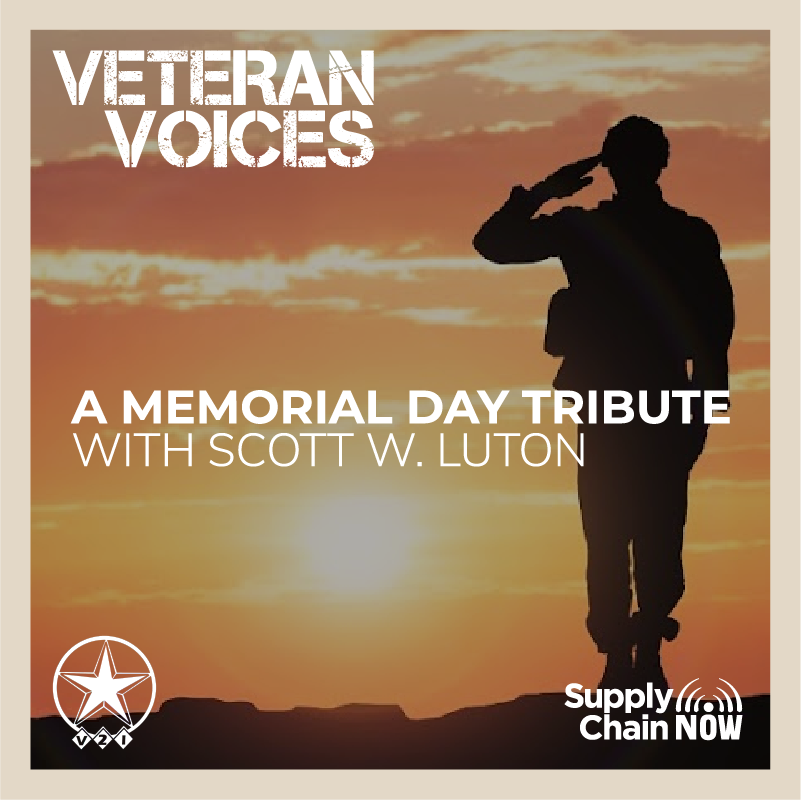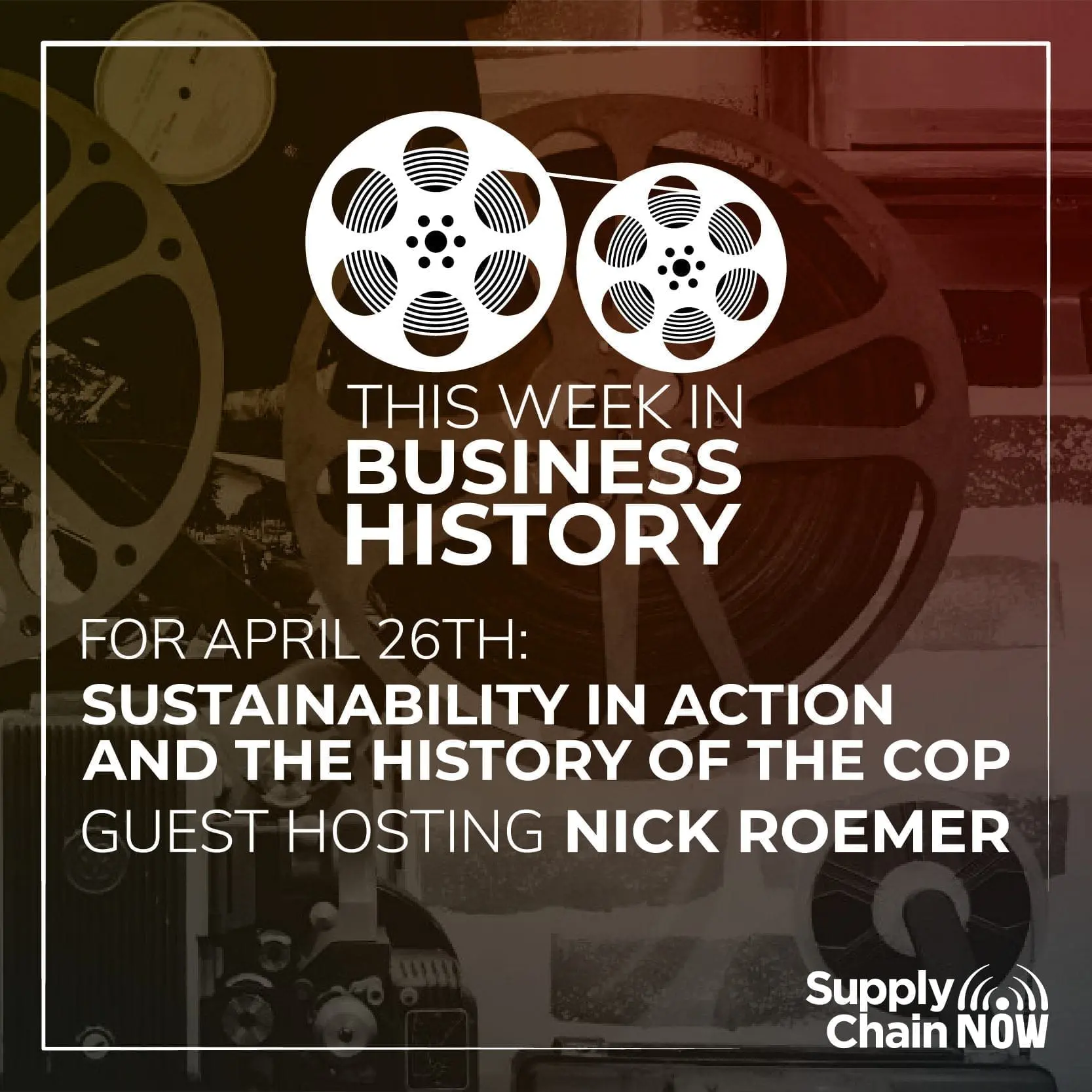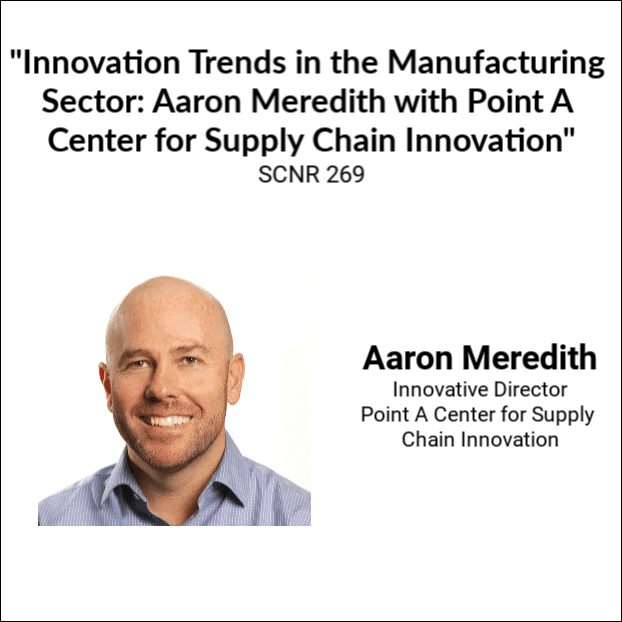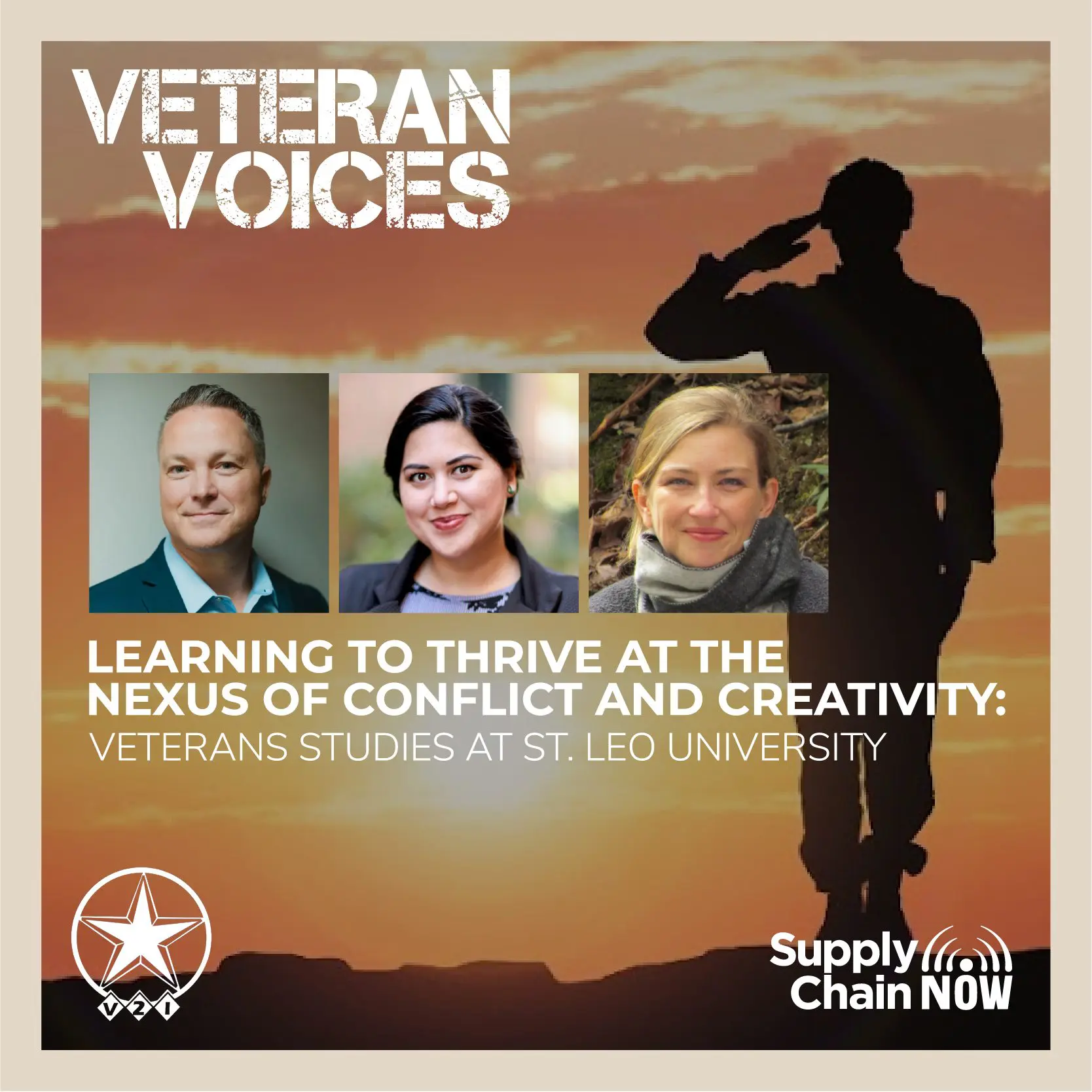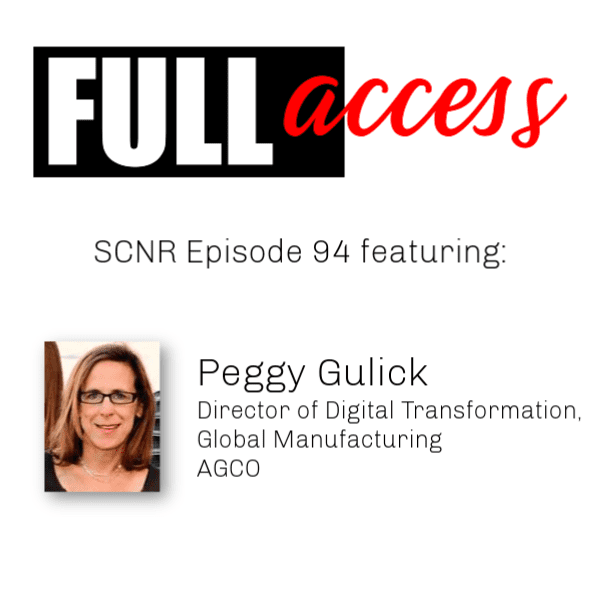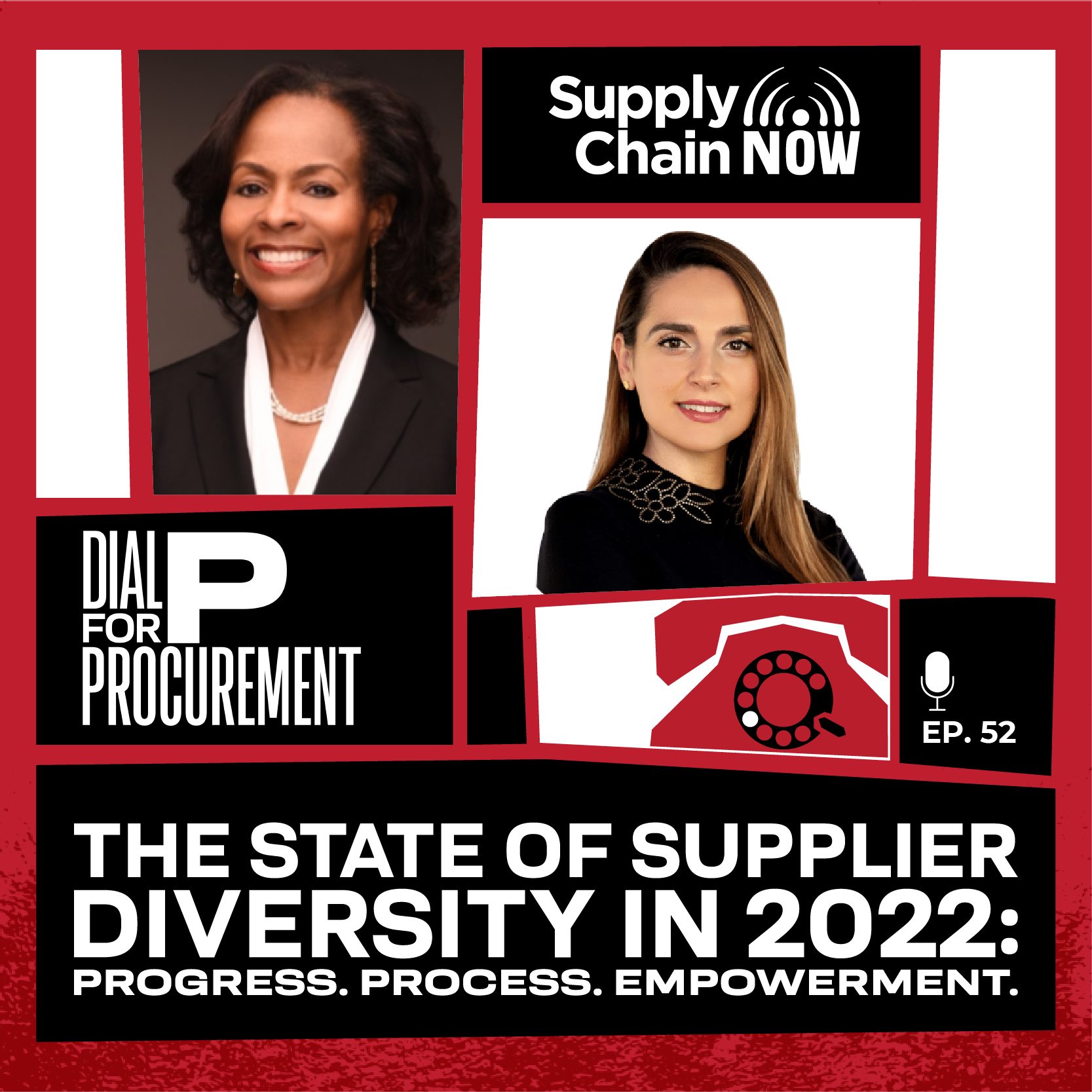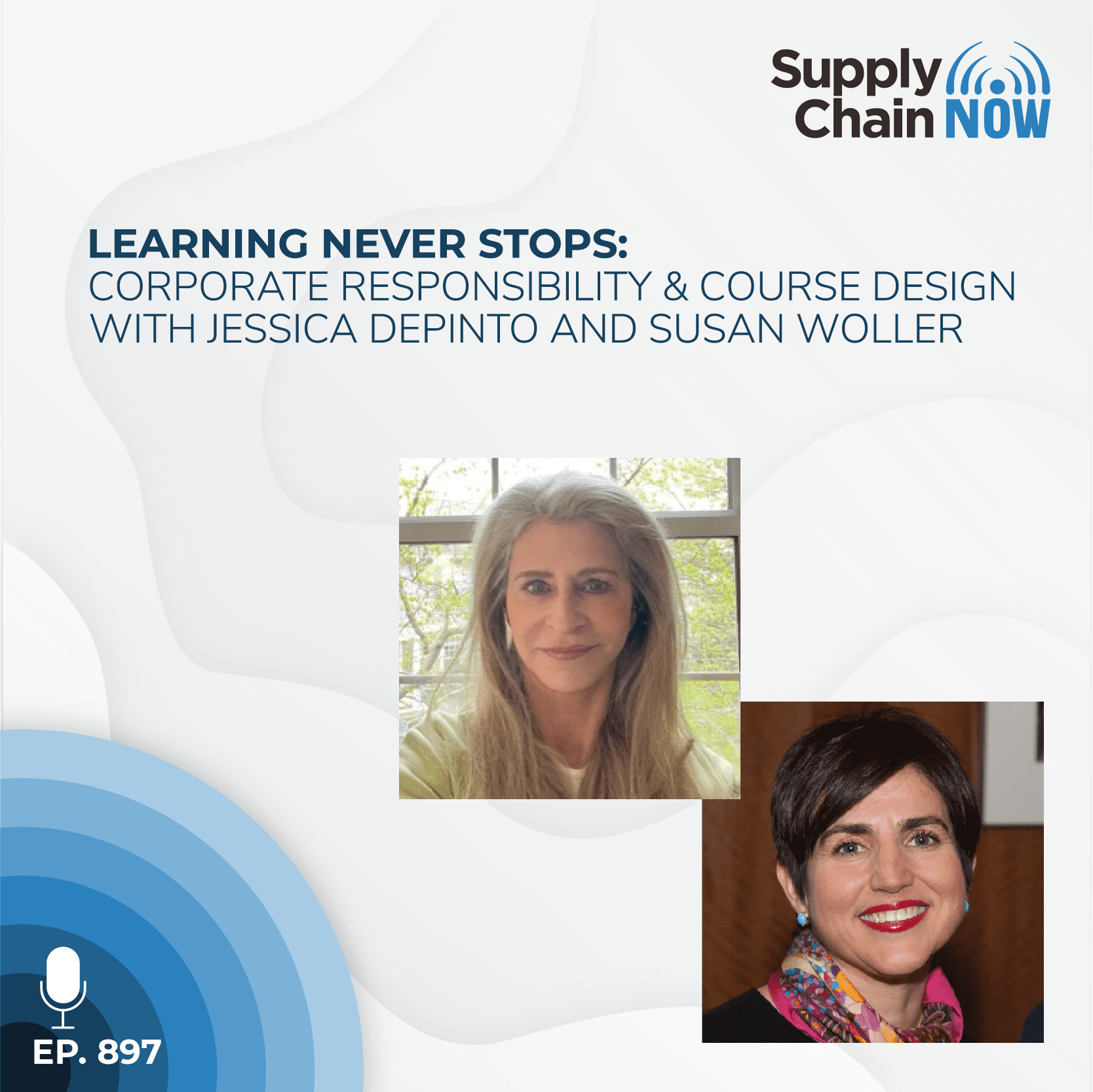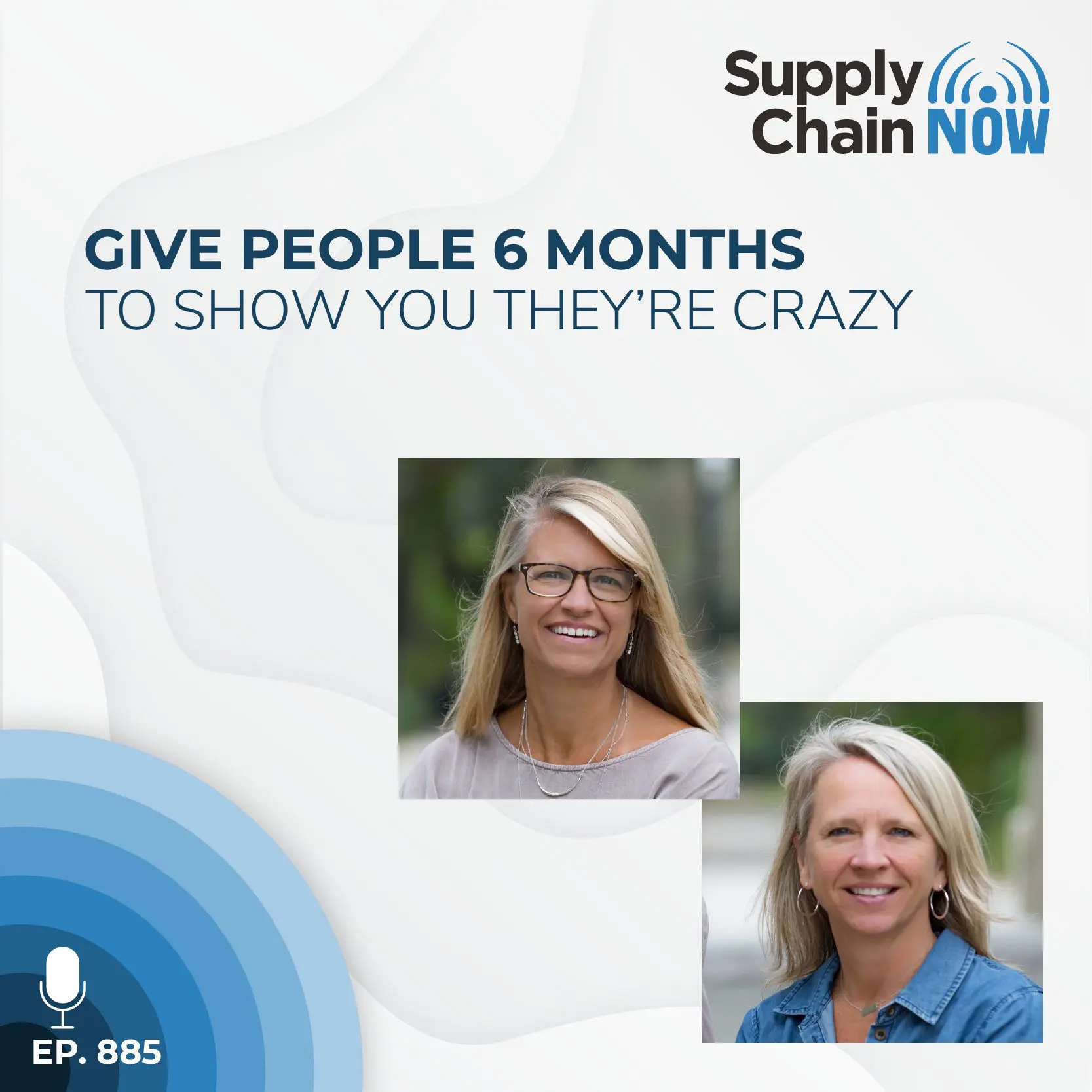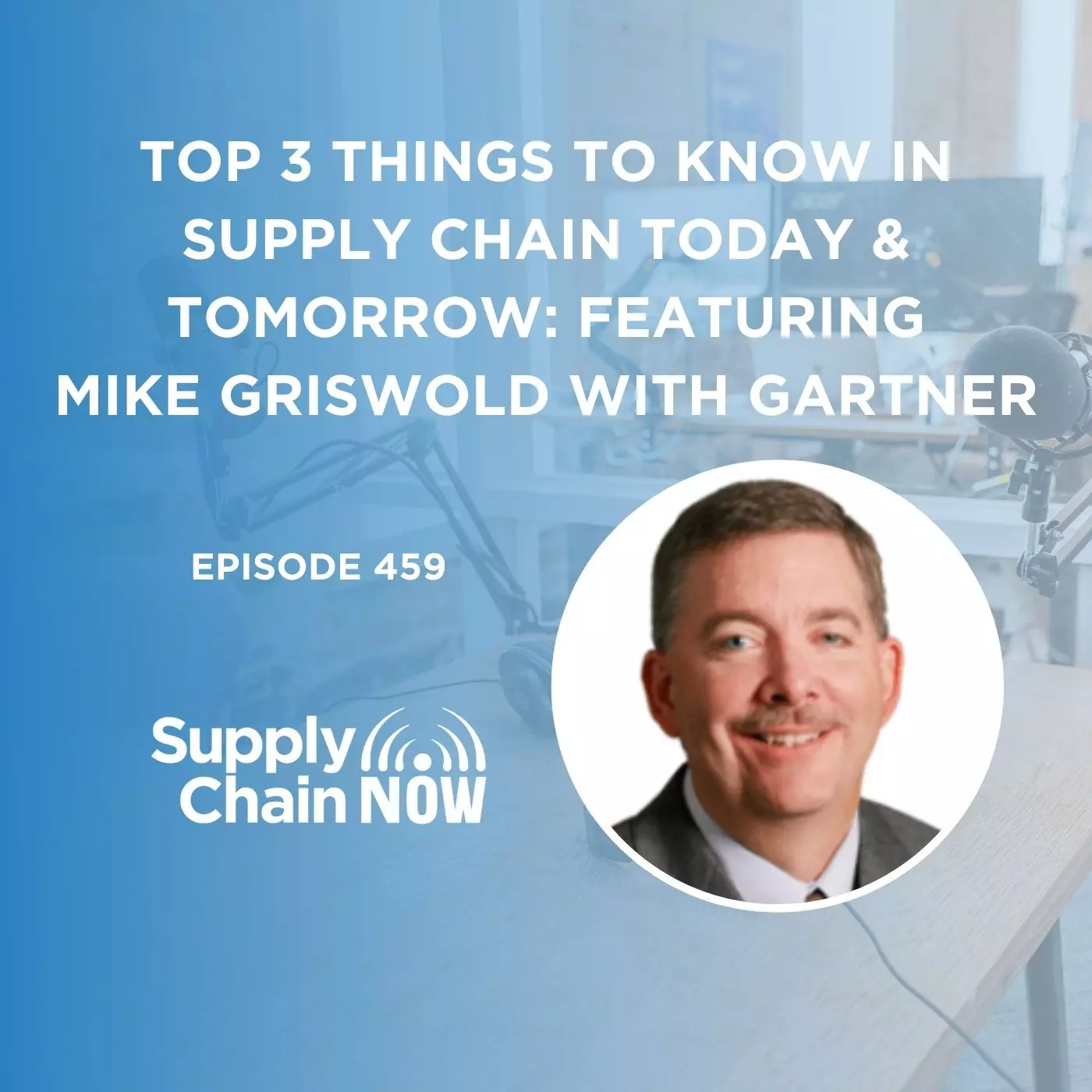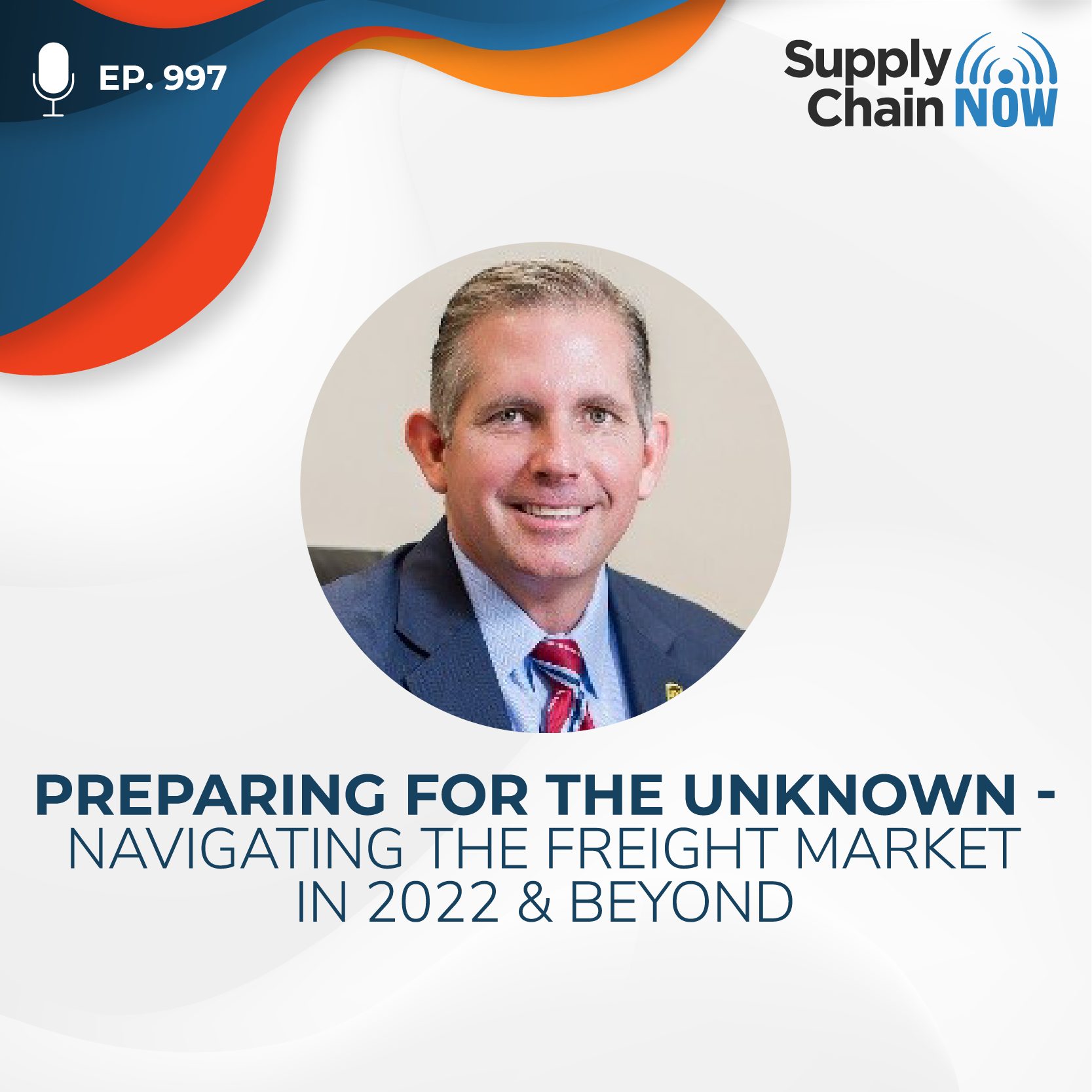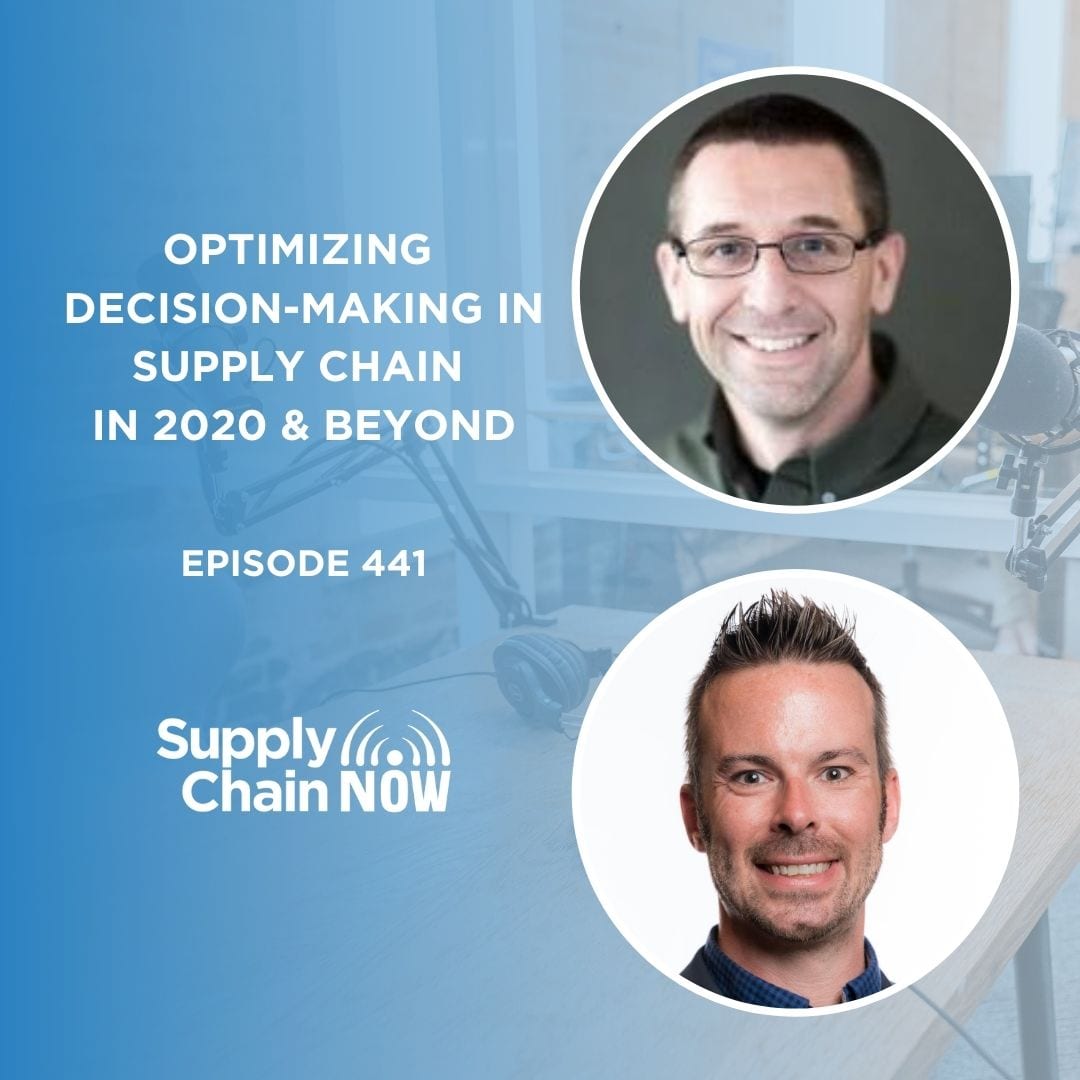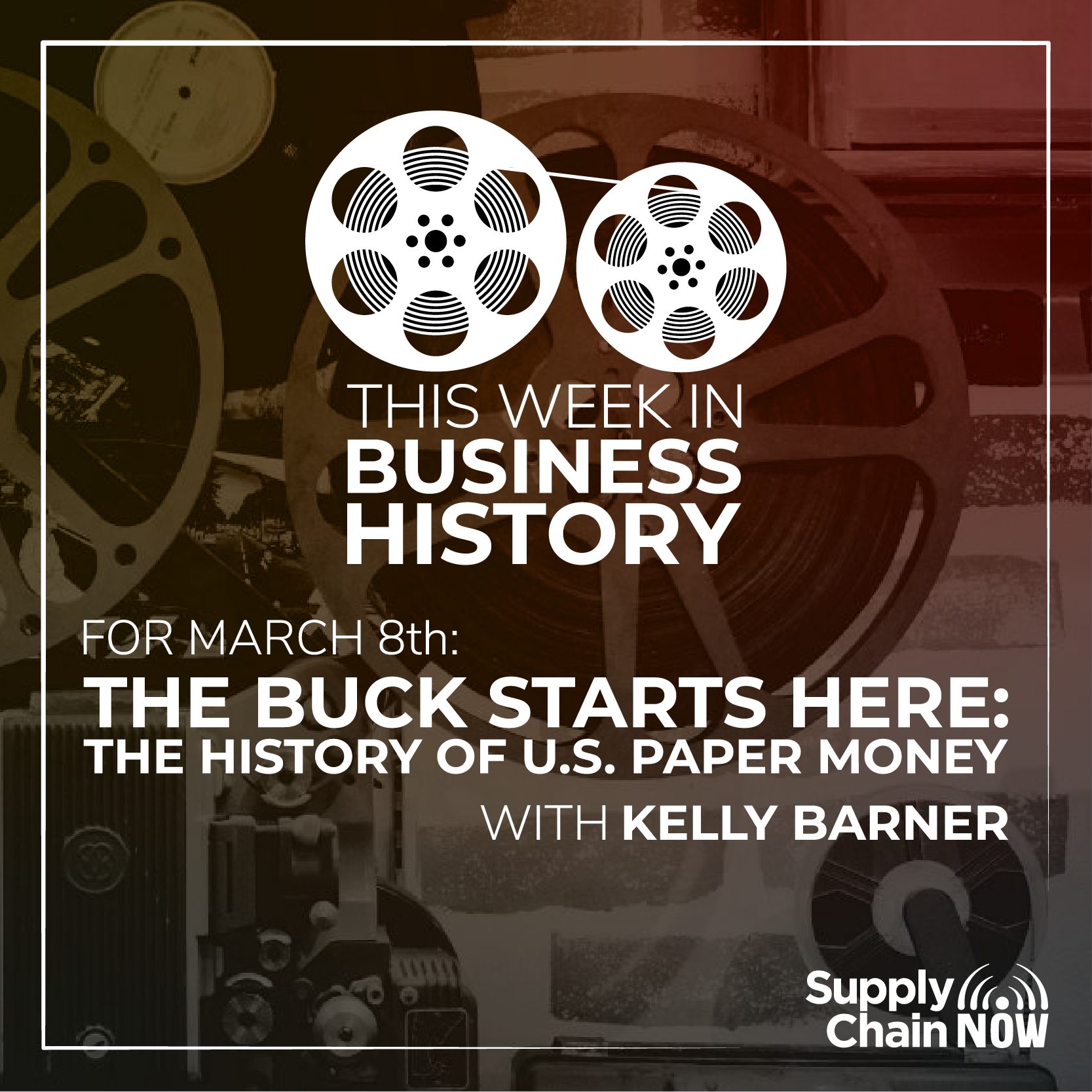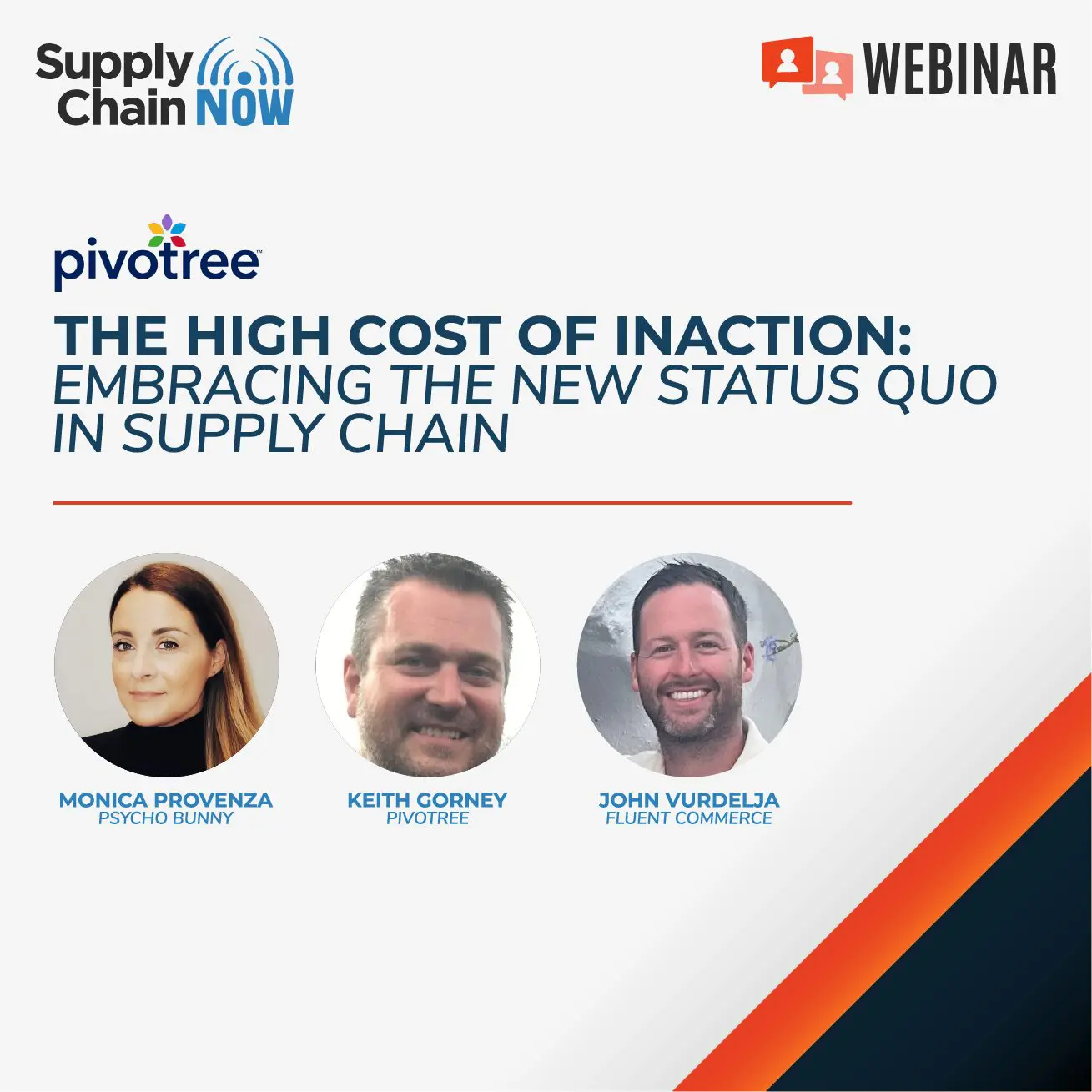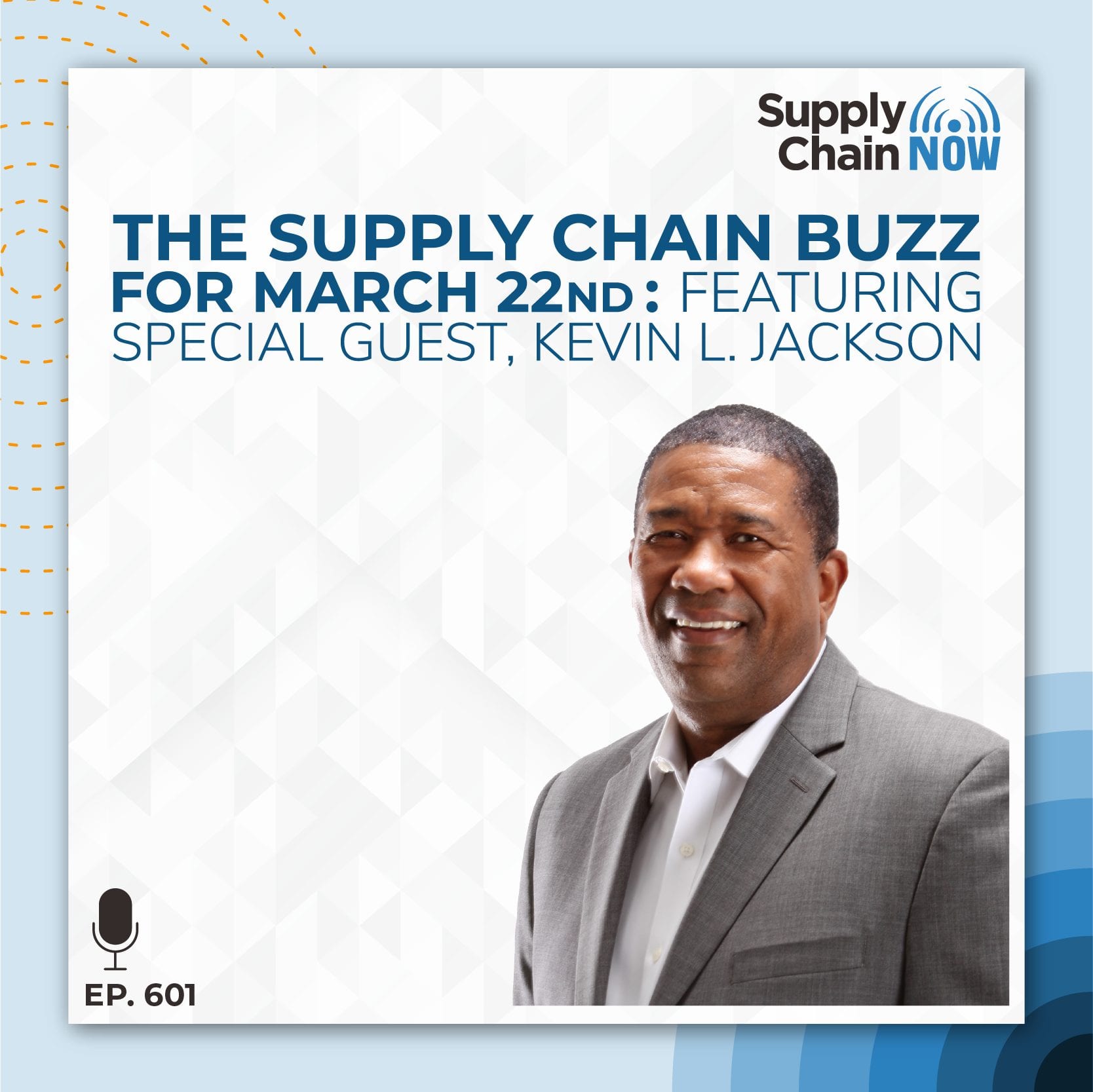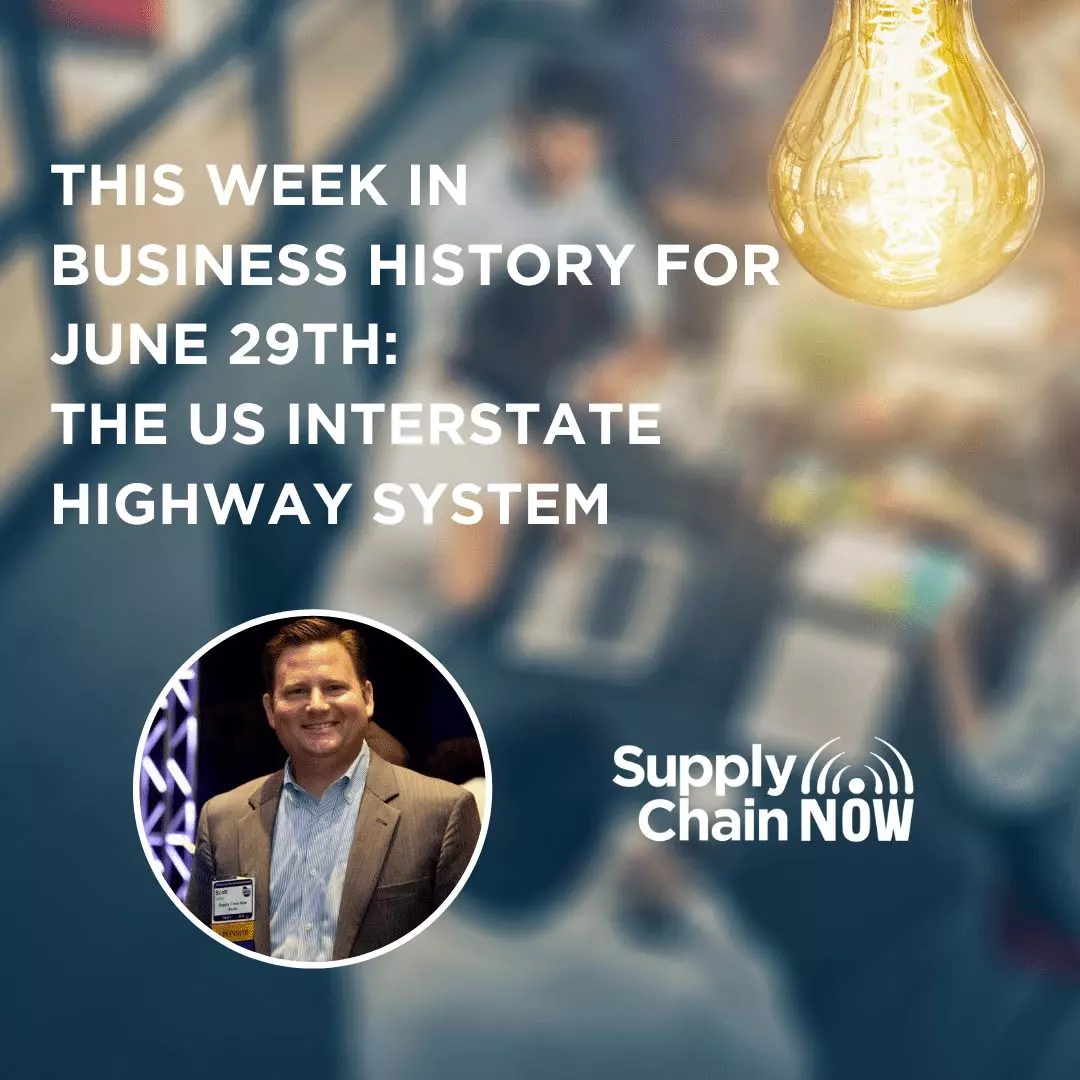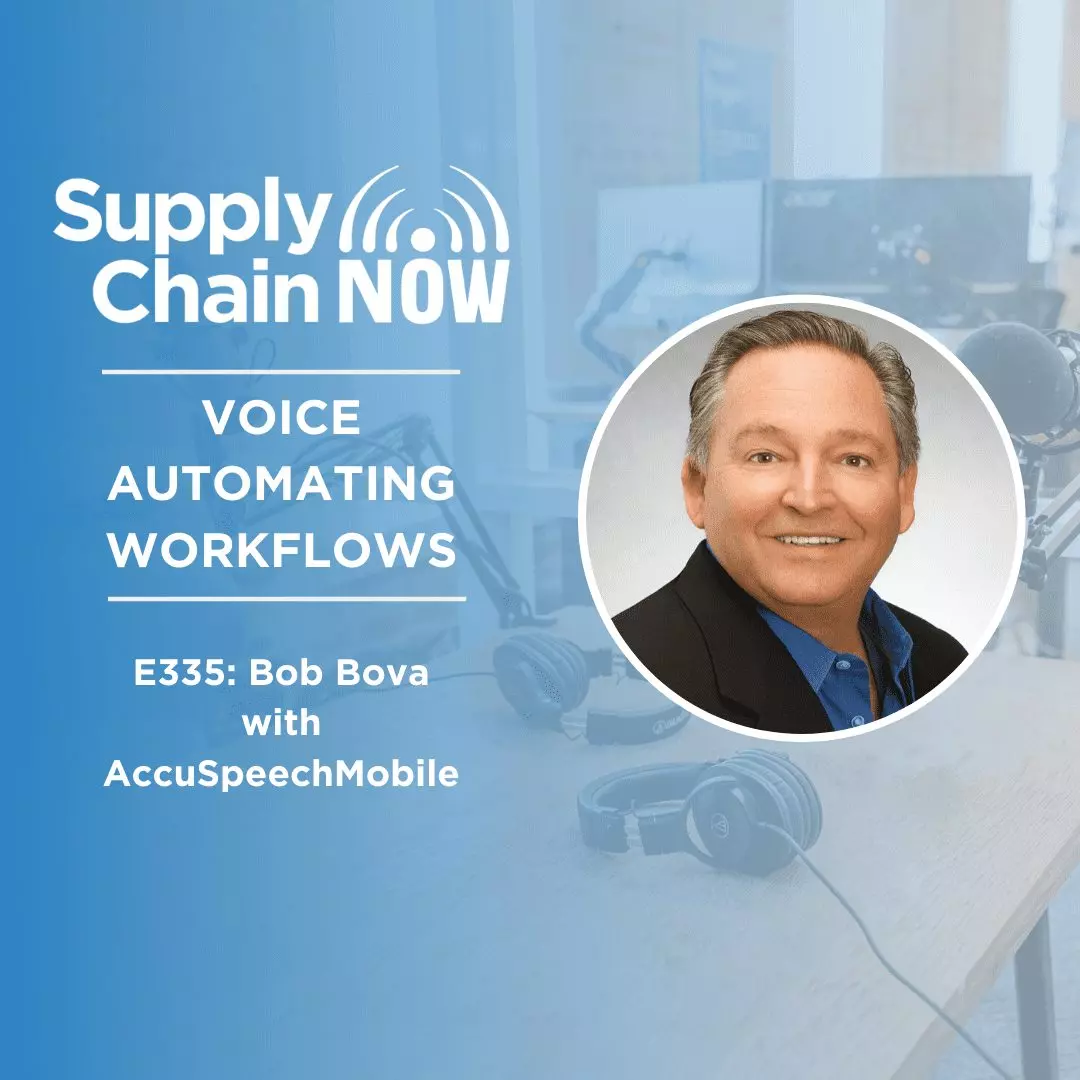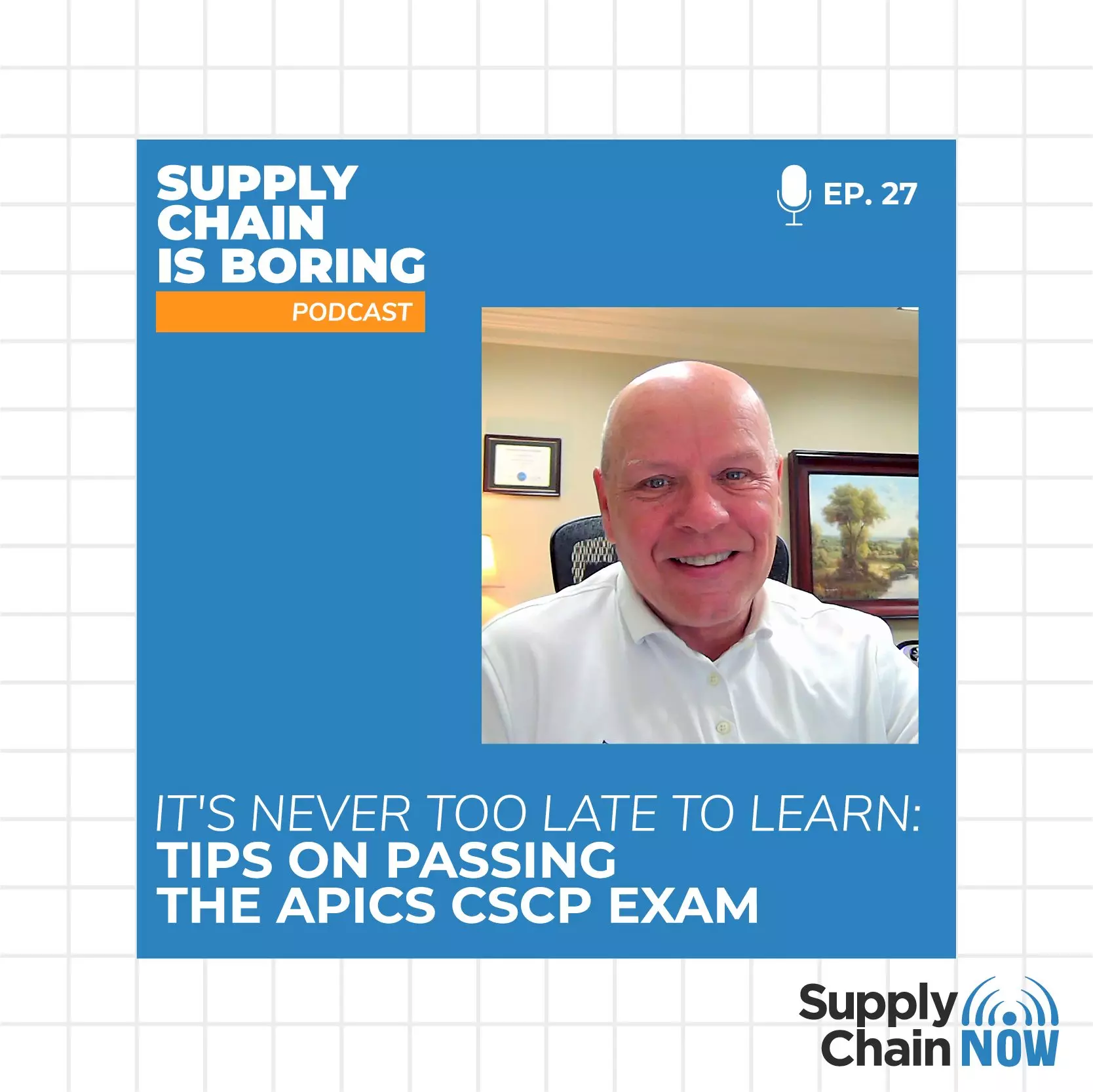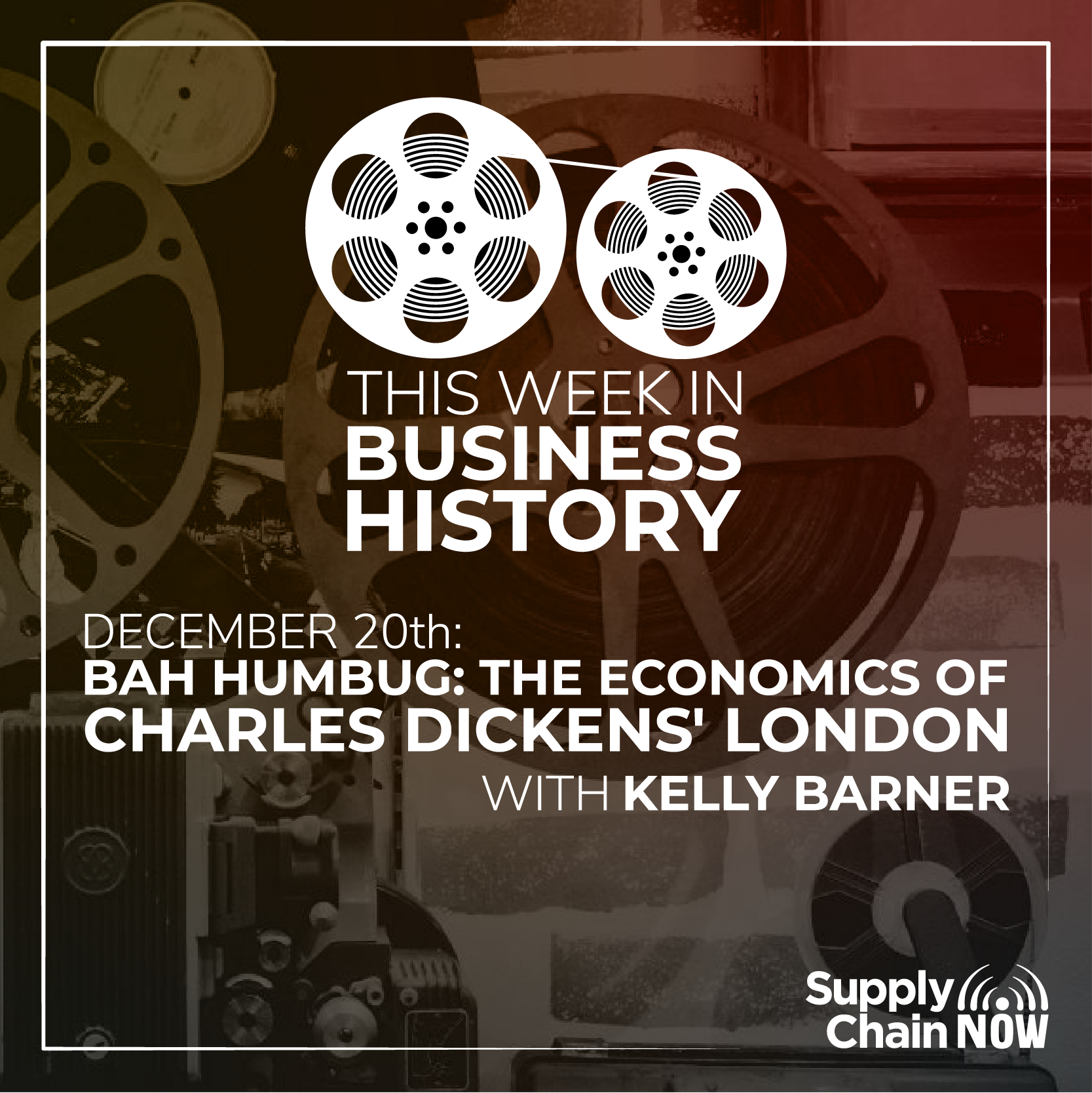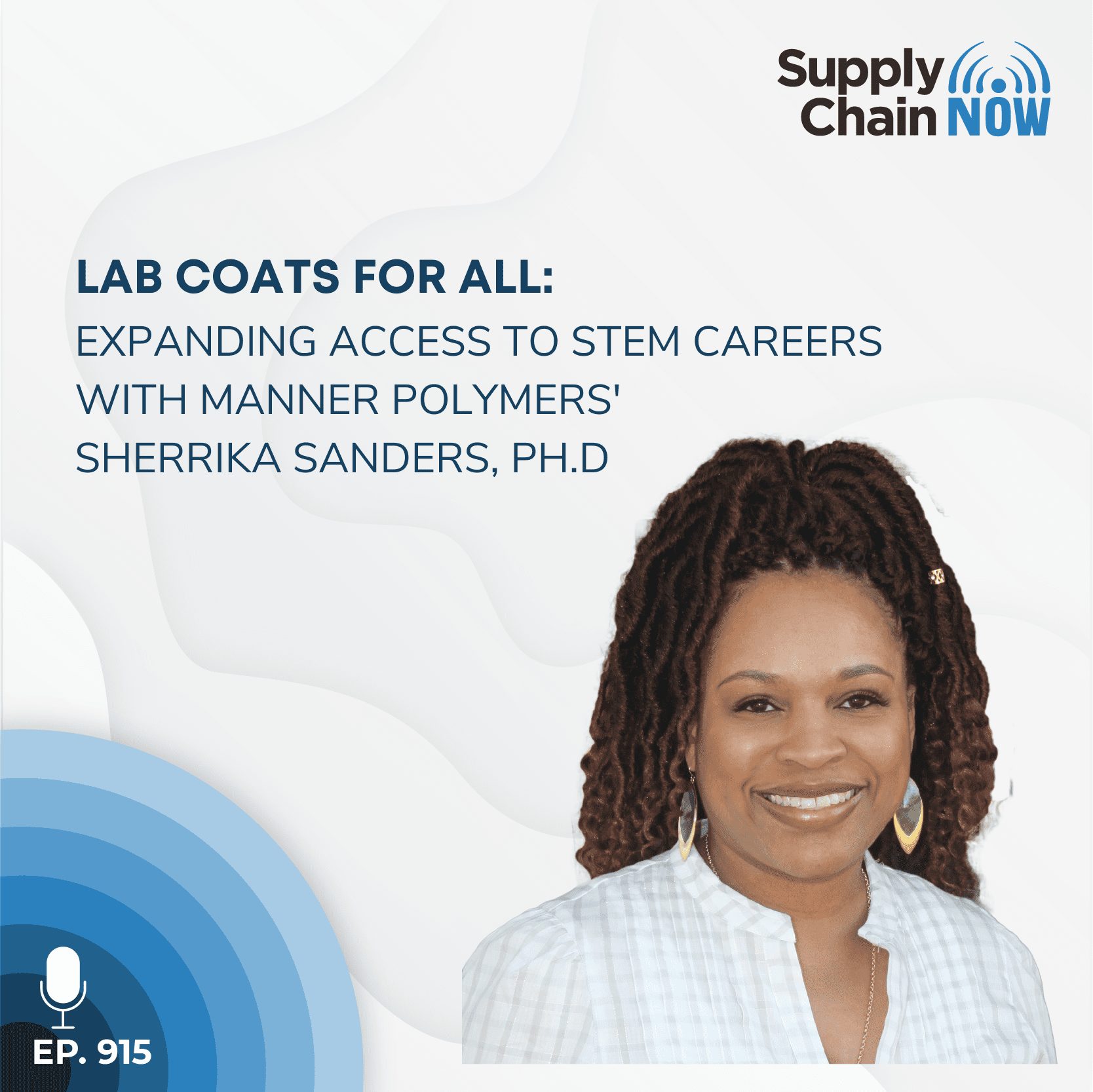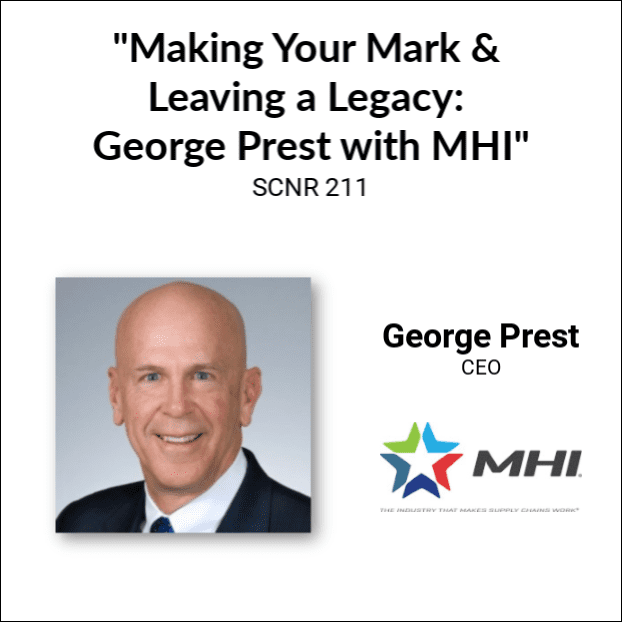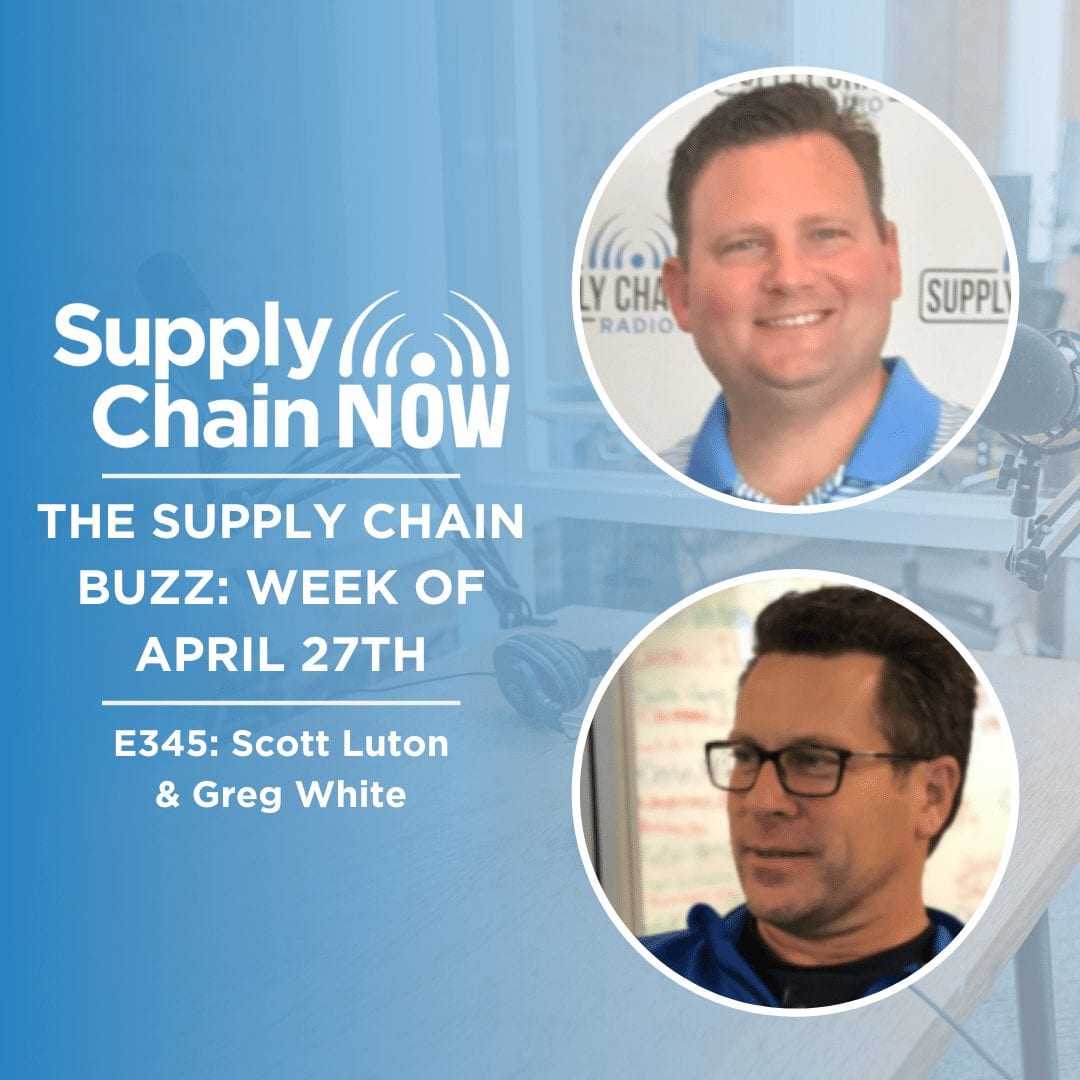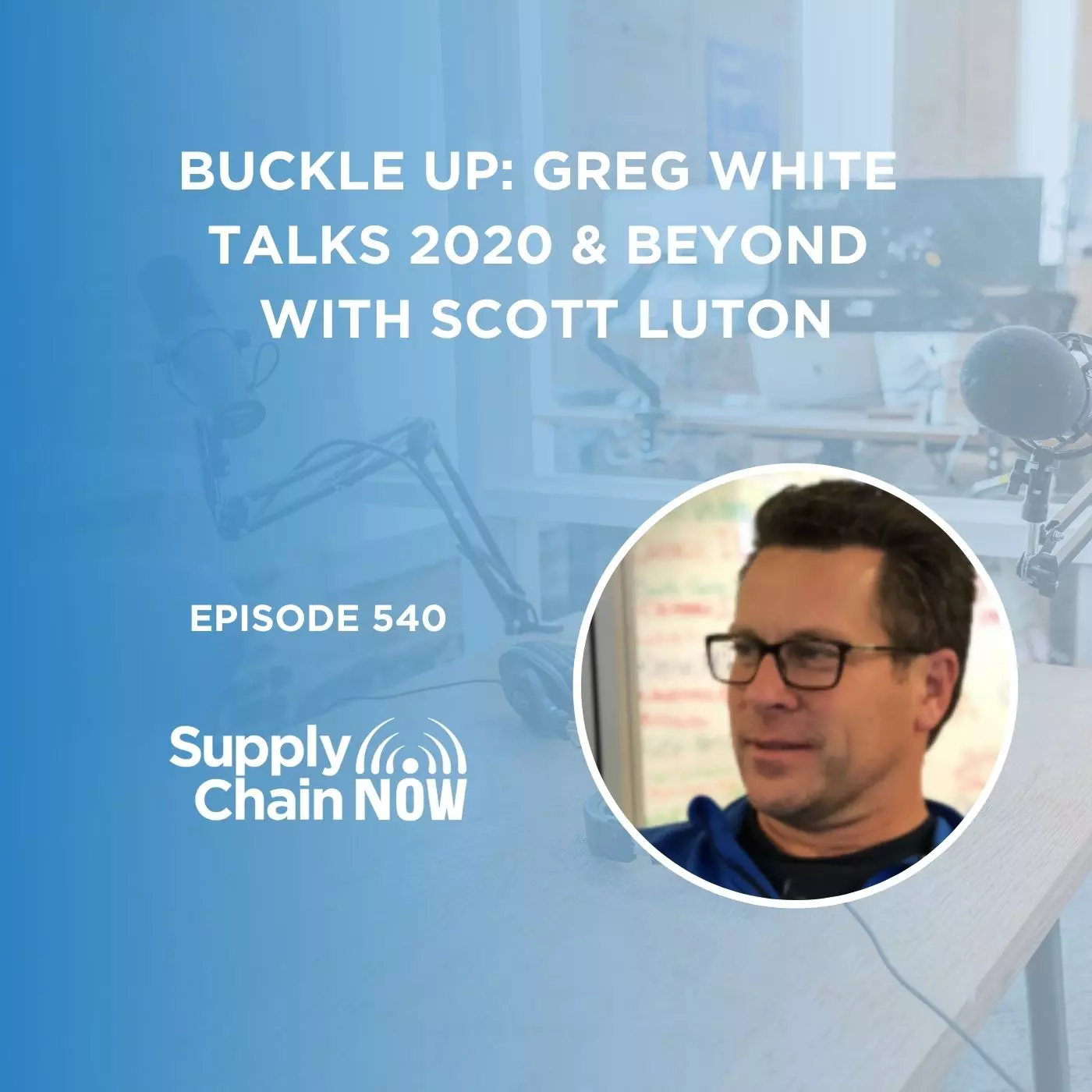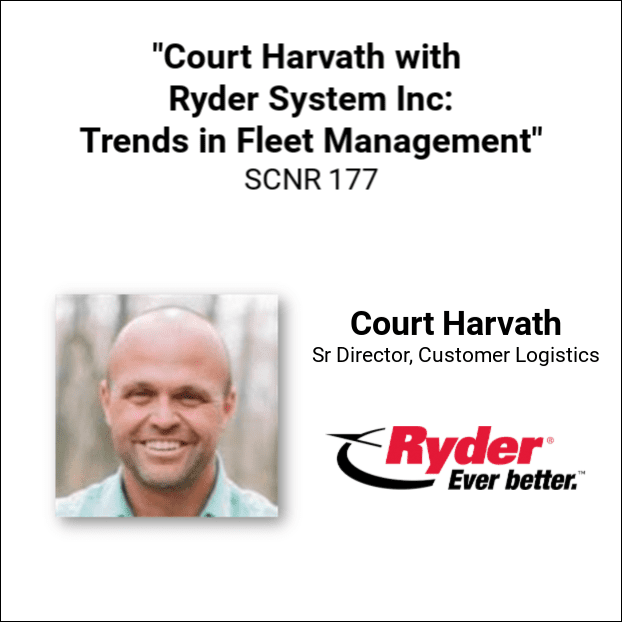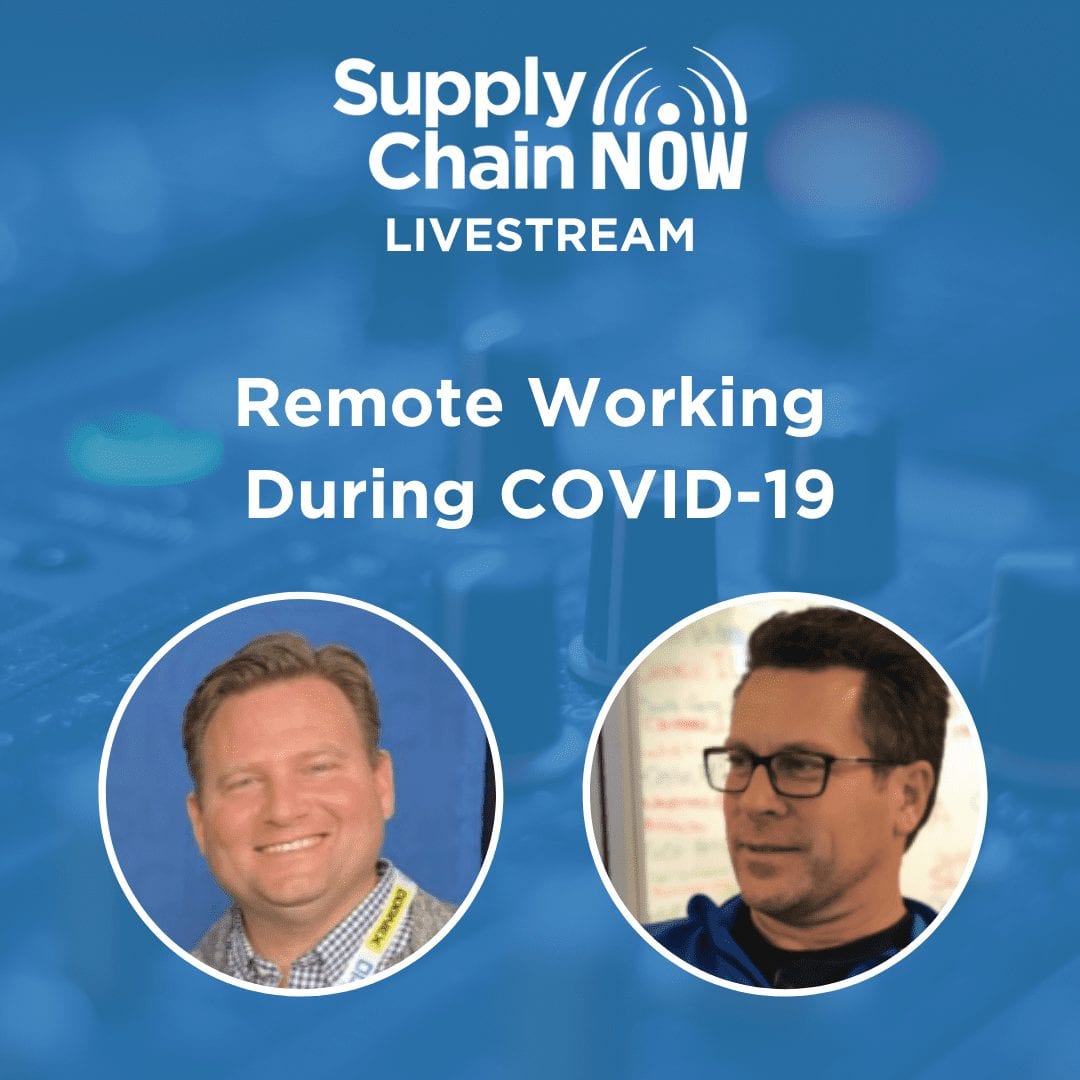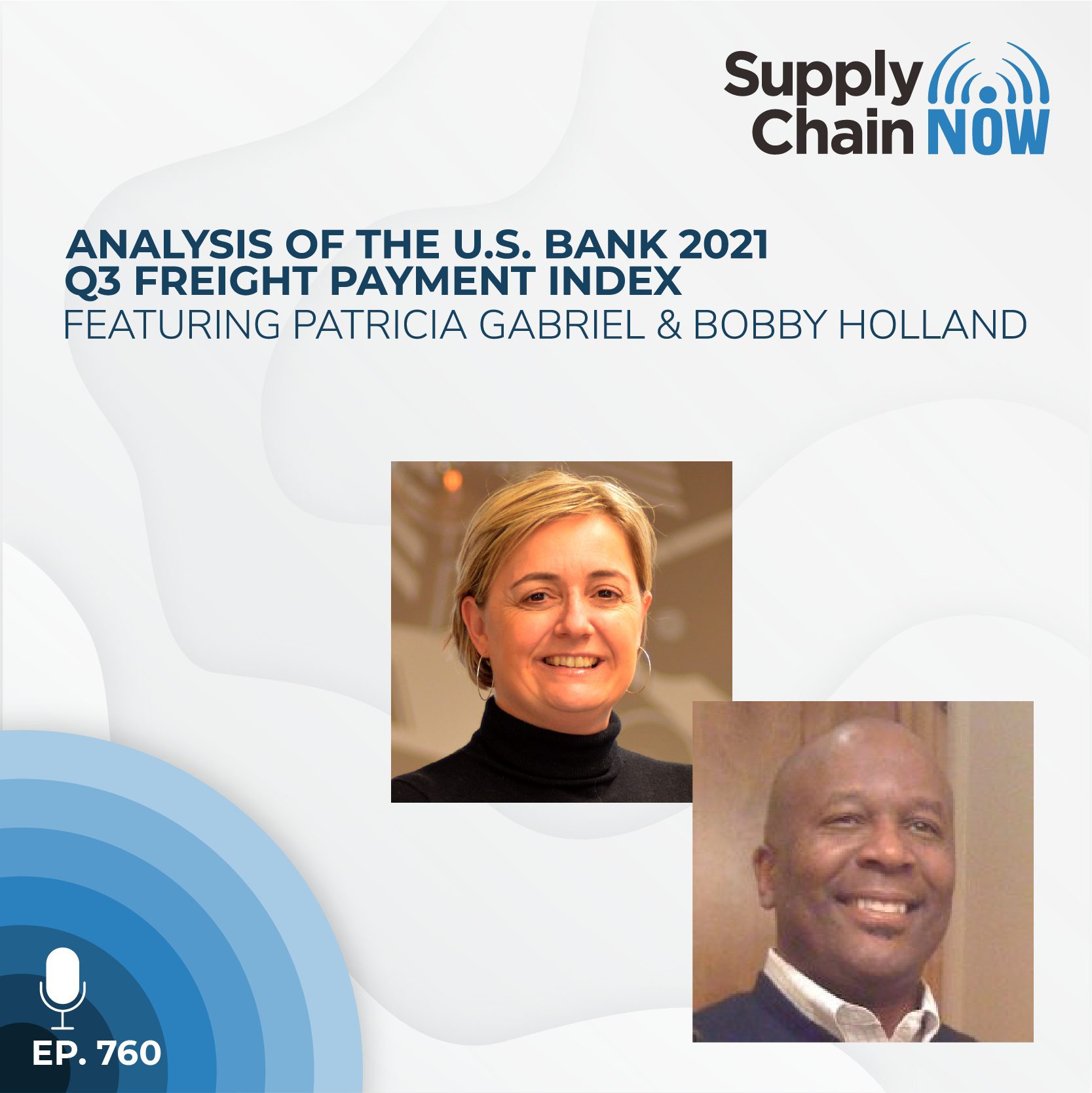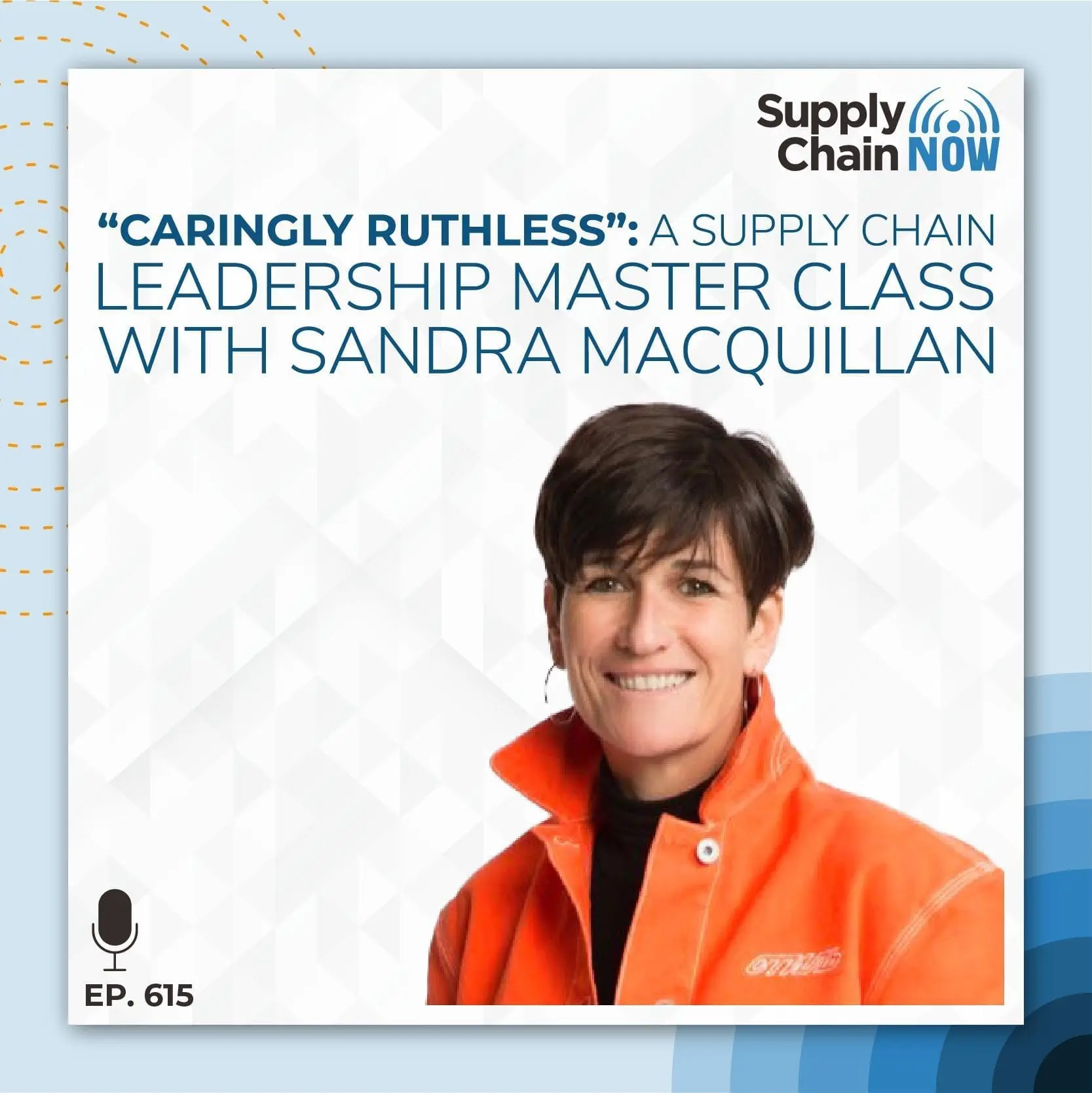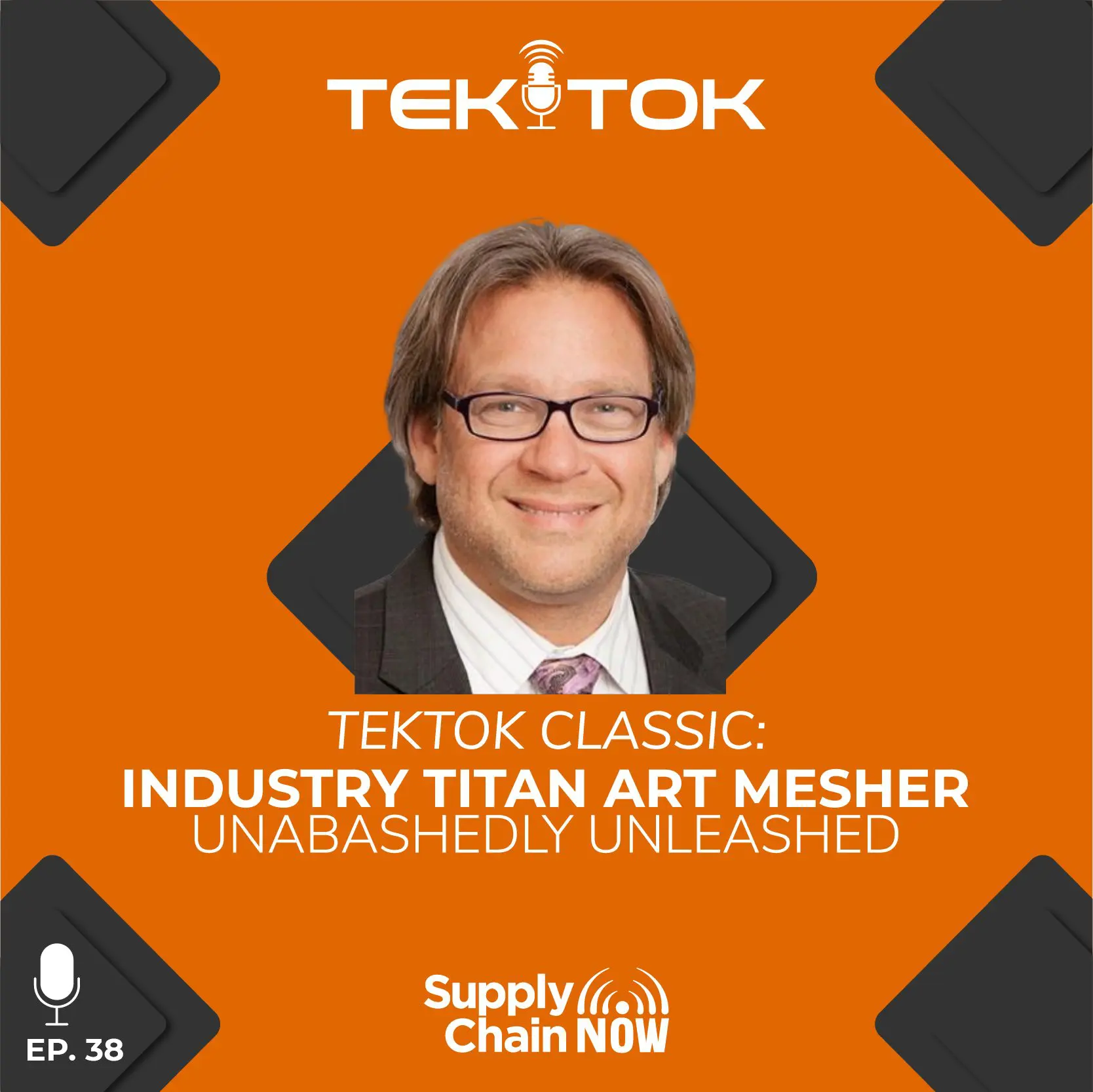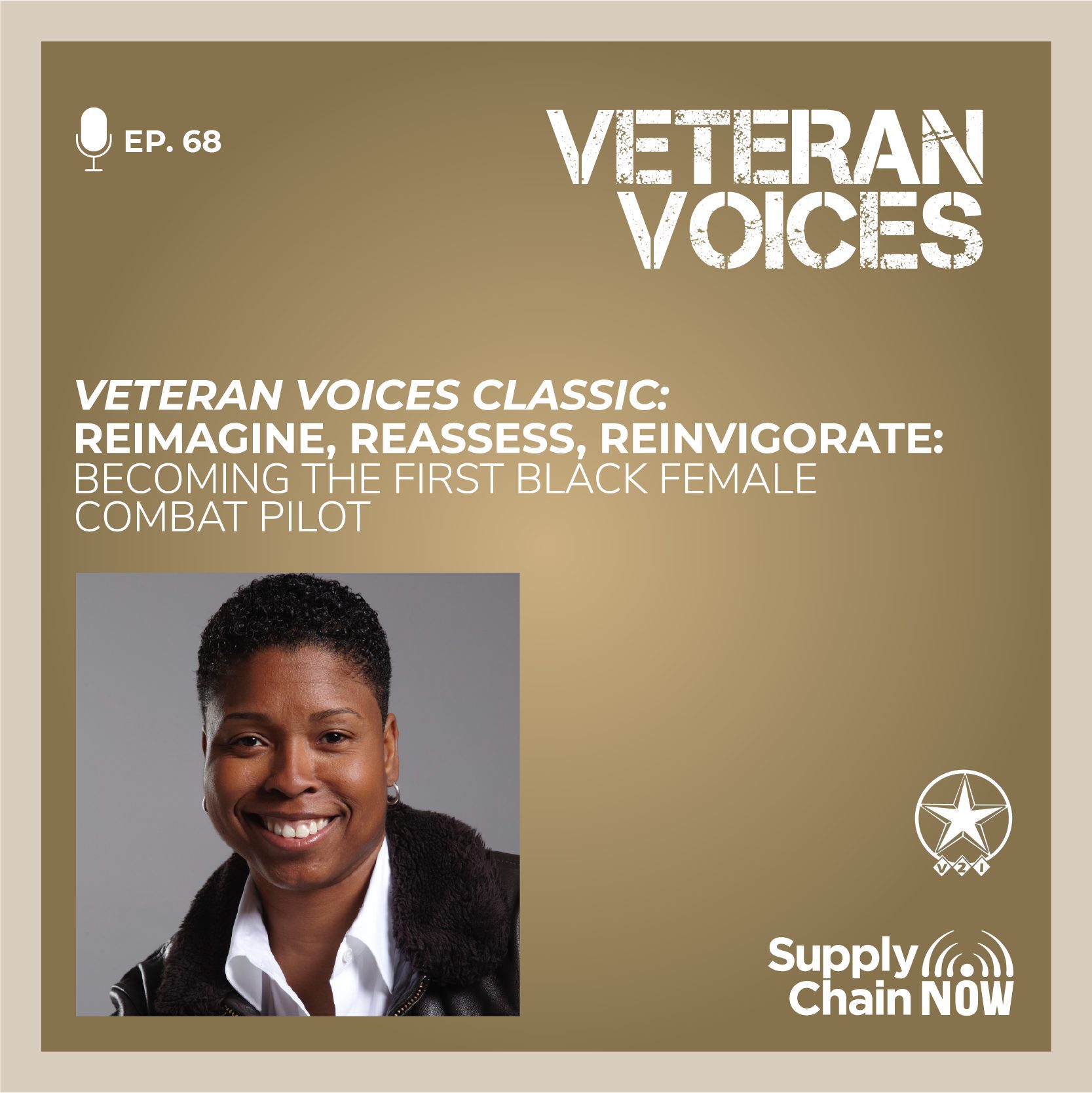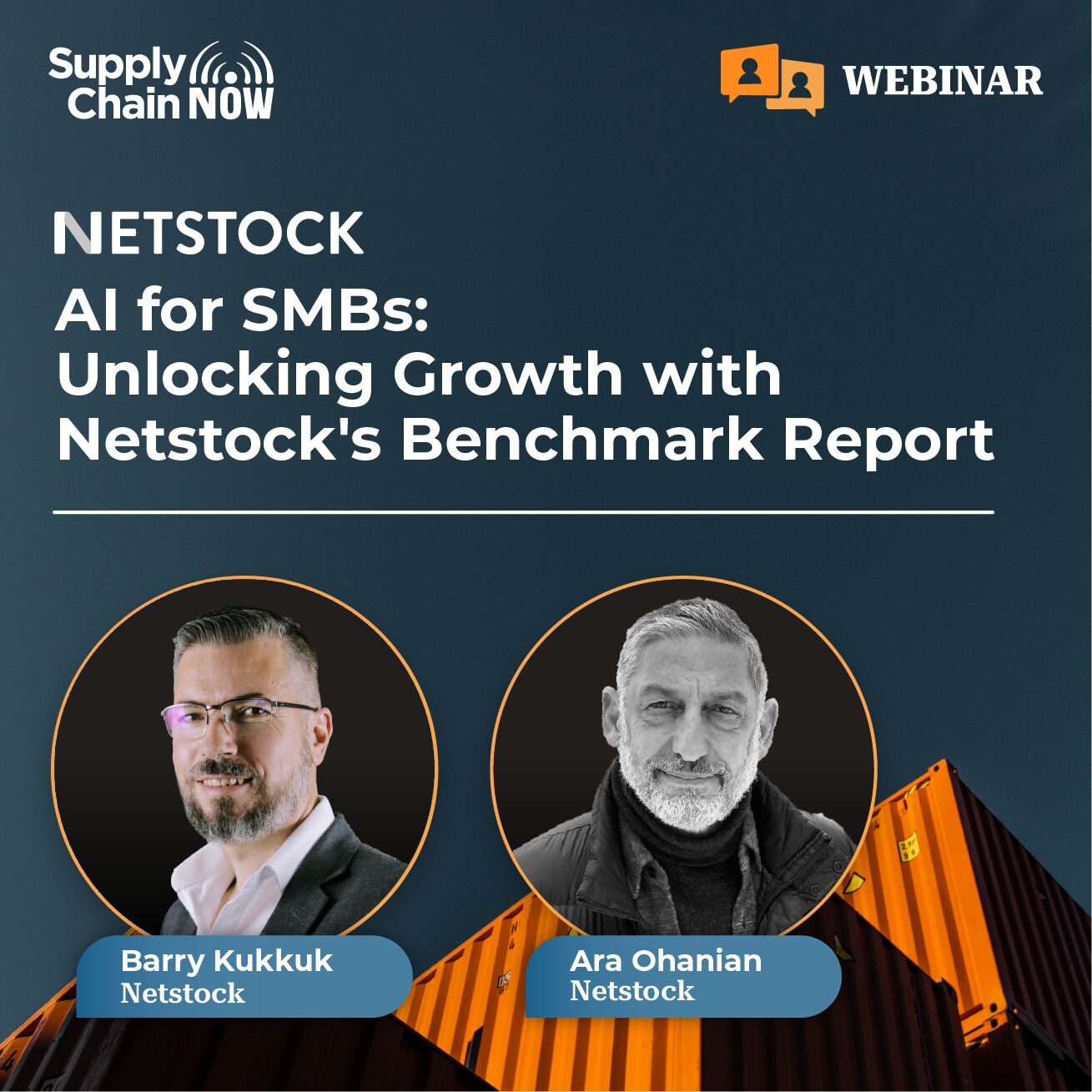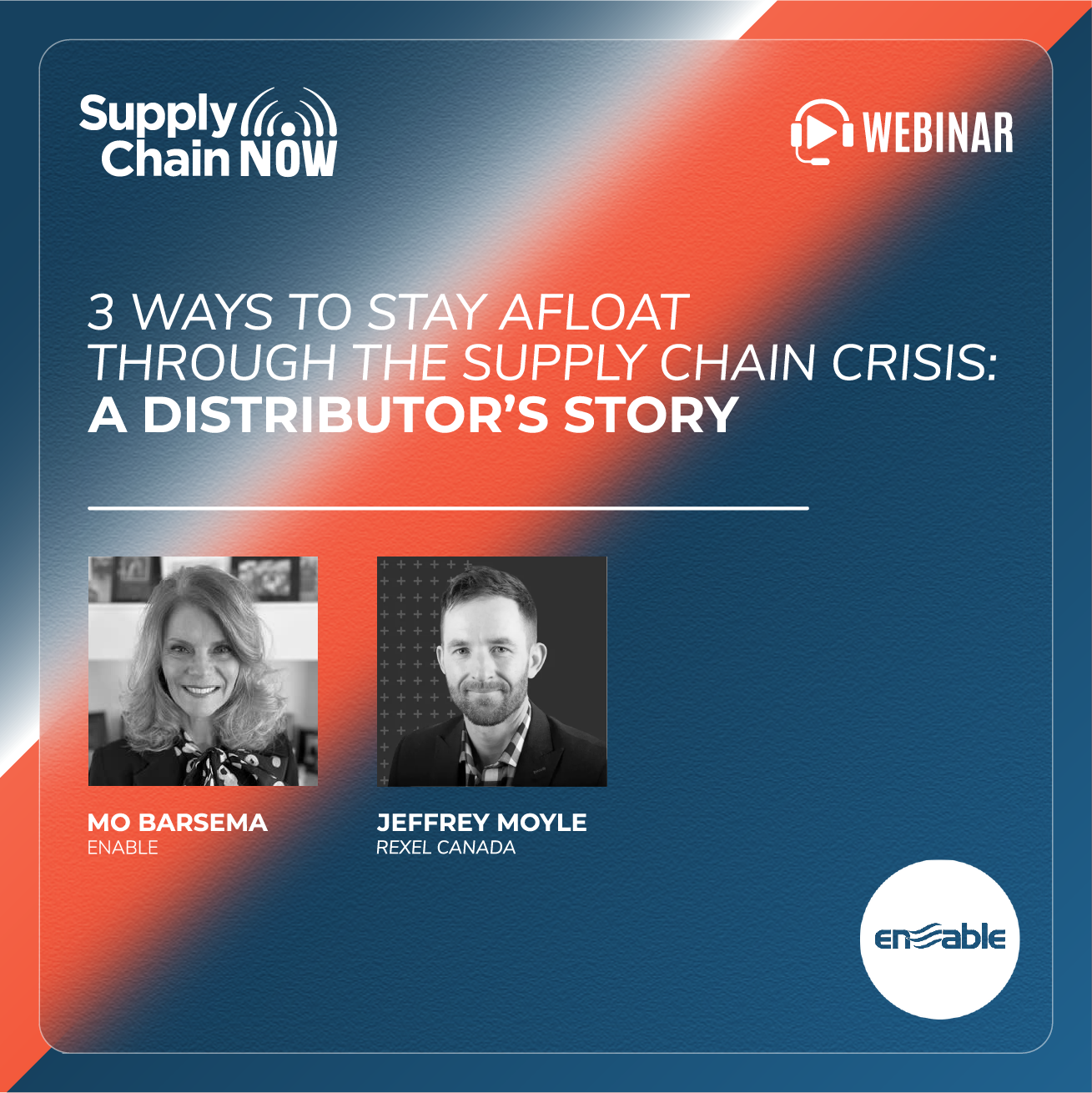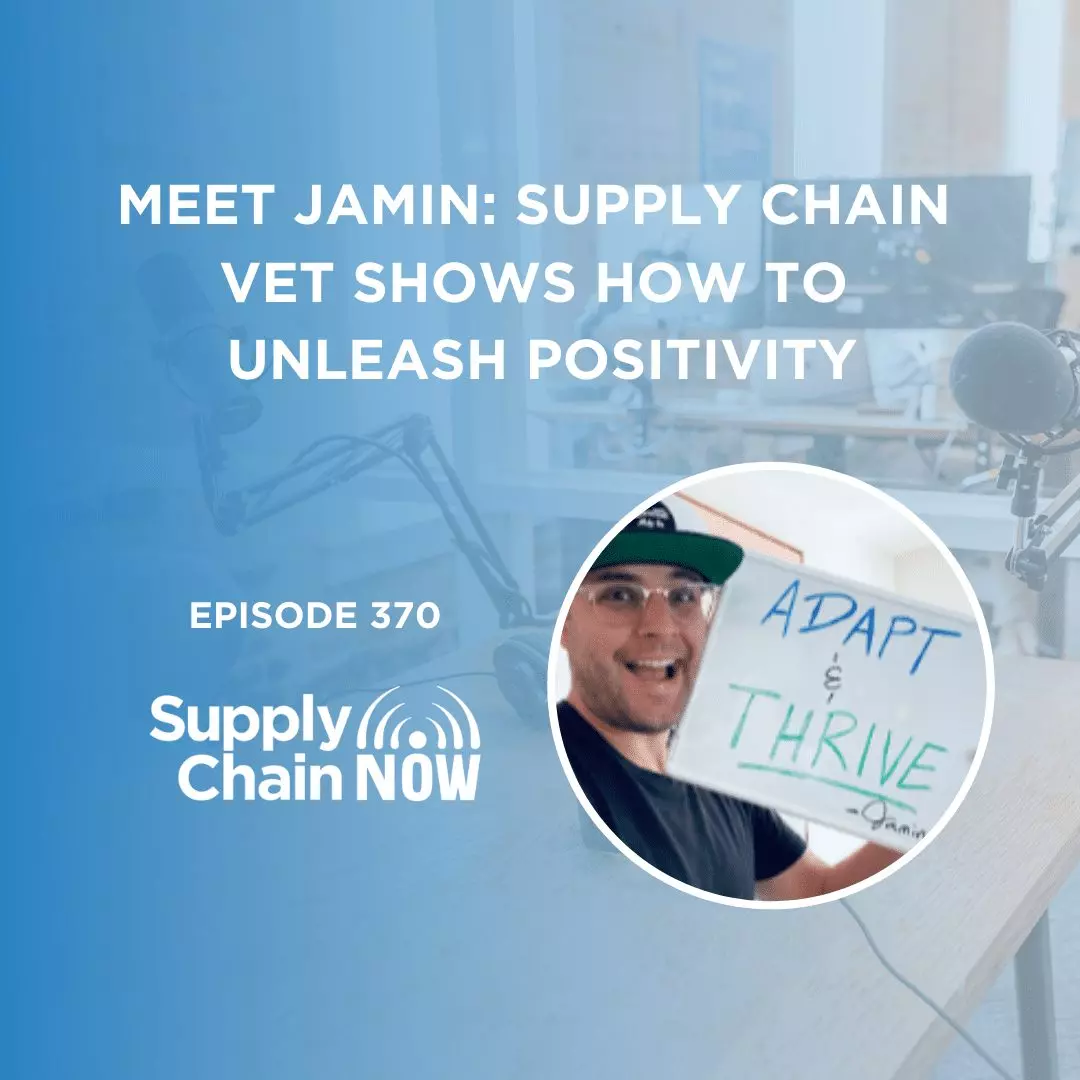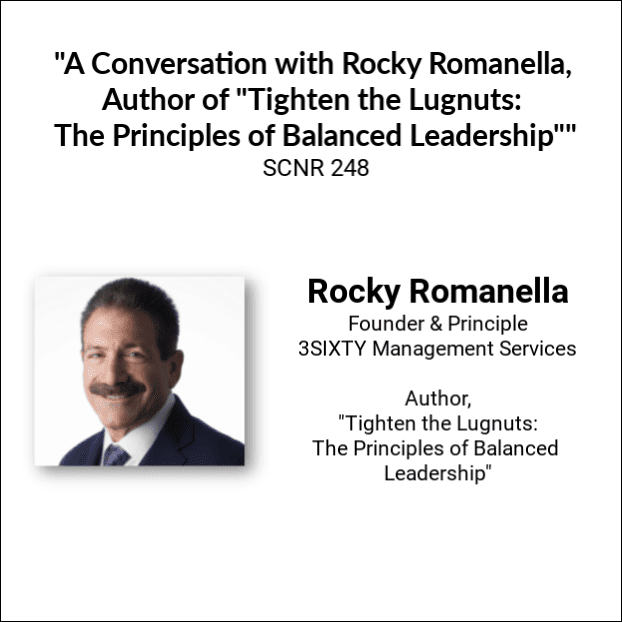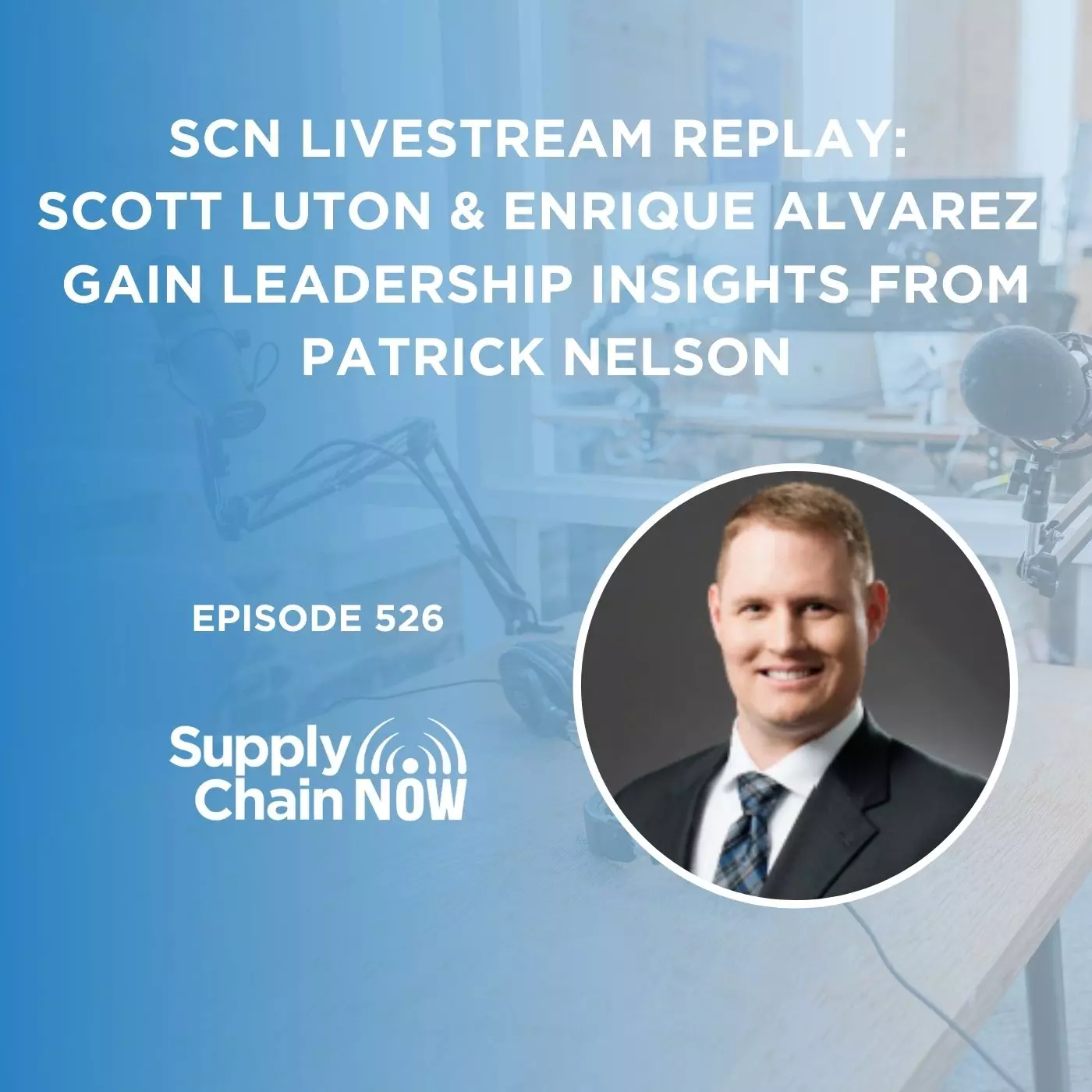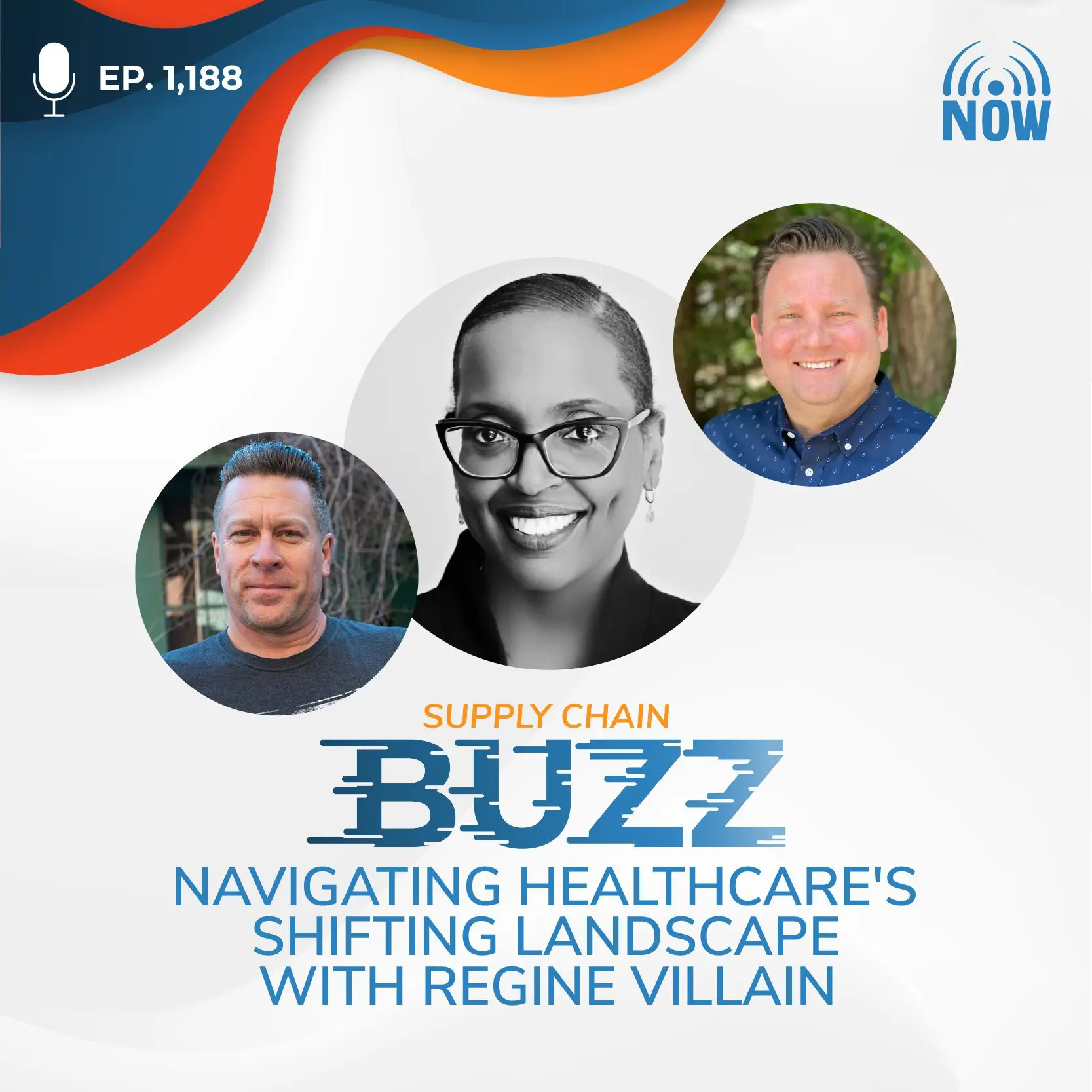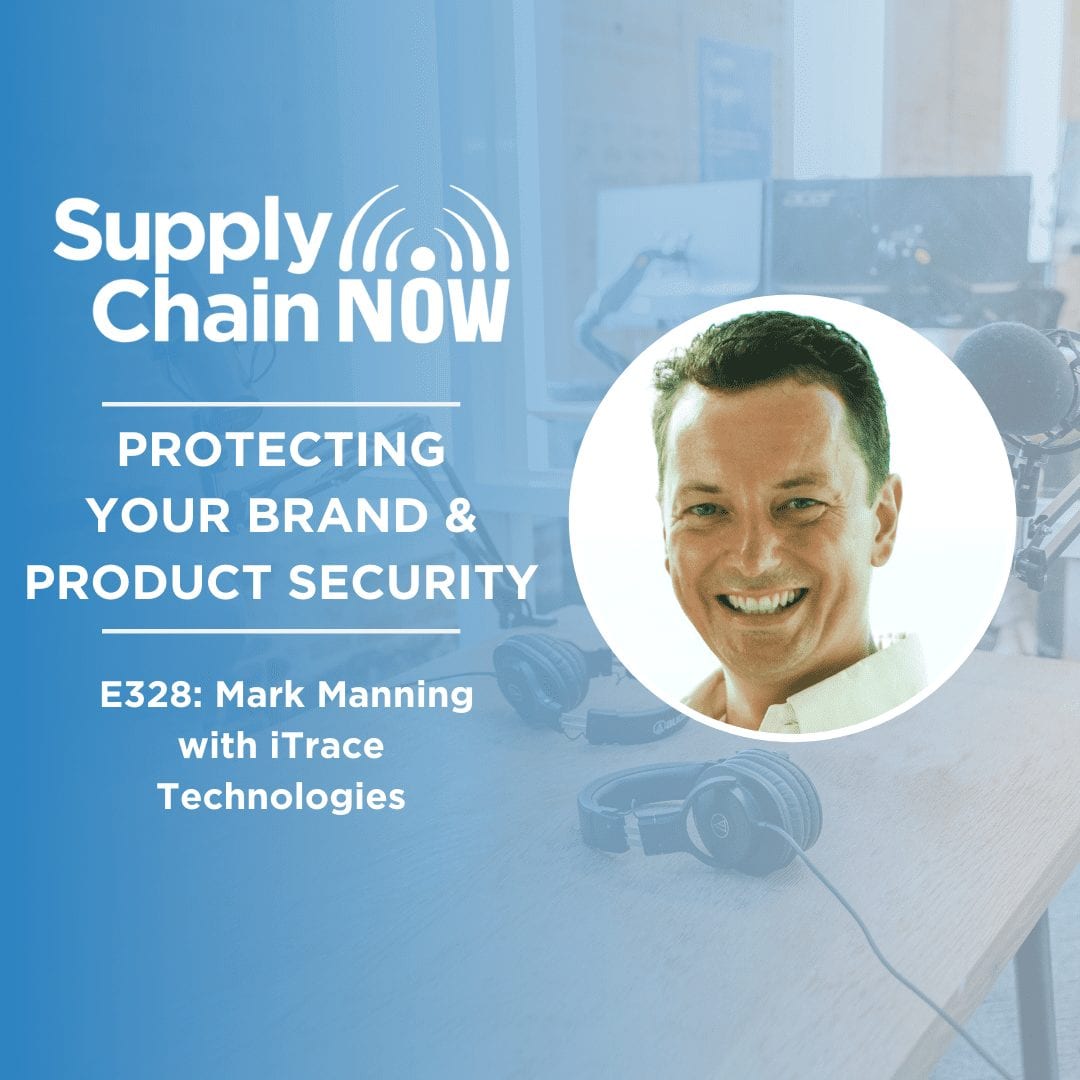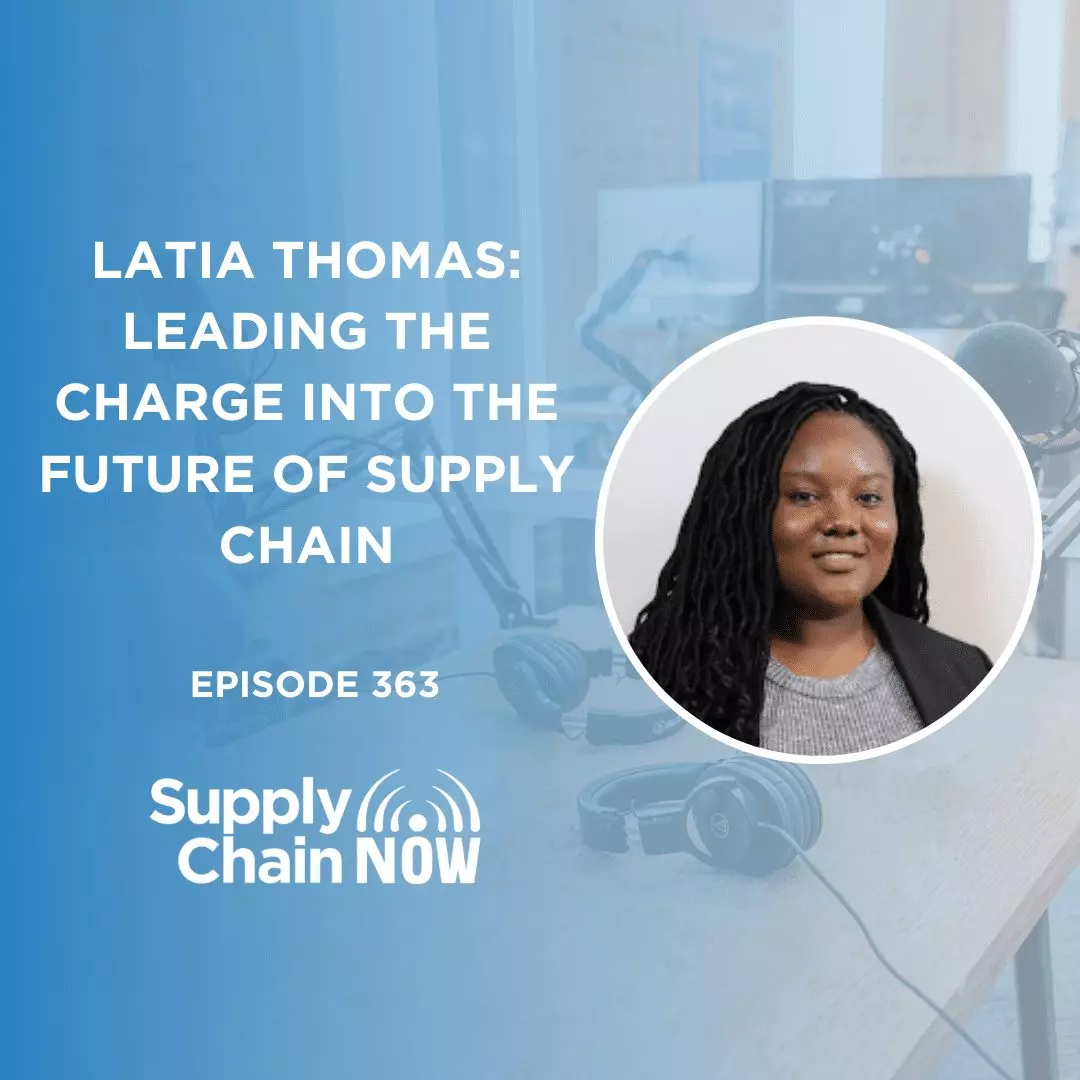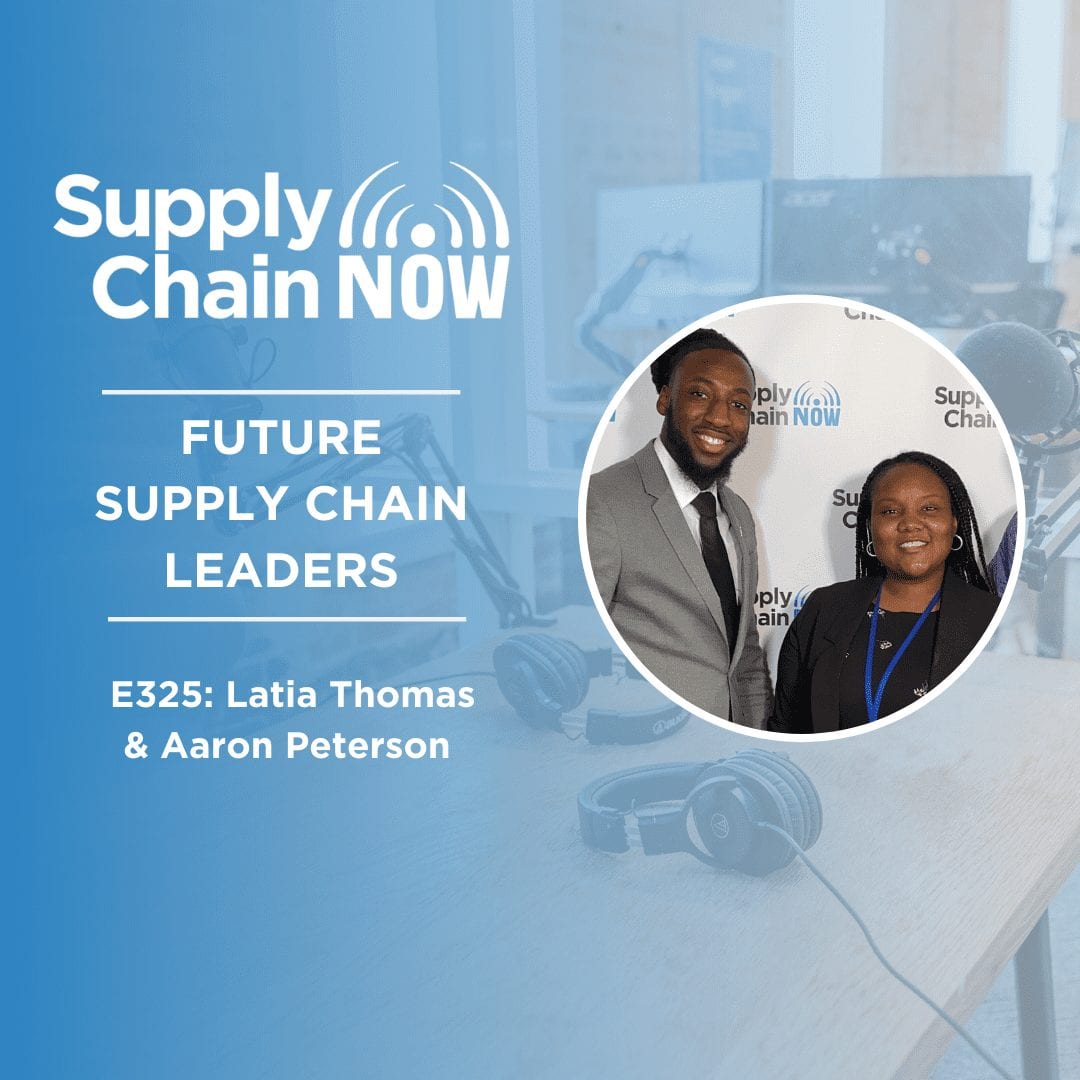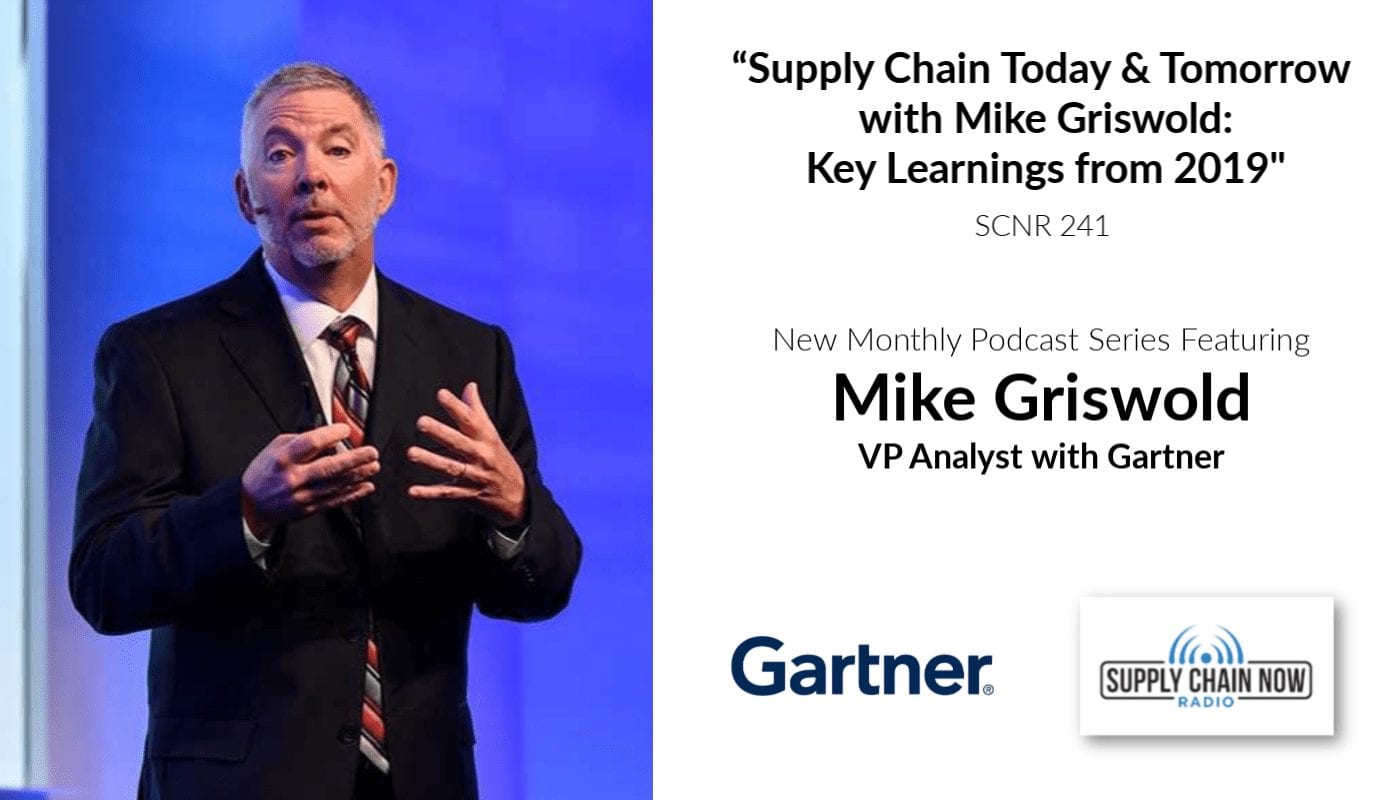
Episode Summary
“What we’re finding is companies that embrace disruption, that recognize disruption as the new normal, those companies are succeeding. The companies that are kind of “Woe is me… I don’t know what’s going to happen tomorrow…” Those types of companies are struggling.”
– Mike Griswold, Vice President Analyst
This podcast marks the launch of a new Supply Chain Radio Now podcast series: Supply Chain Today and Tomorrow. Mike Griswold, Vice President of Research at Gartner will be joining us monthly to talk about the trends and observations he picks up on in his work as an analyst. Mike specializes in retail, with a particular focus on forecasting and replenishment. In 2019, he also took over responsibility for Gartner’s popular Top 25 Supply Chains ranking.
In this podcast, Mike shares his biggest takeaways and lessons learned from 2019 with Supply Chain Now Radio Co-hosts Scott Luton and Greg White and makes some actionable recommendations that supply chain leaders can incorporate into their plans for 2020.
- People: Mindfully attract and retain talent, placing special emphasis on analytical and “soft” skills
- Process: Companies must achieve better cross-functional alignment, closing the gaps between sales and operations planning and execution
- Technology: Nearly all companies have a data quality problem, especially in their master data. Before advanced analytics can be implemented or deliver the expected ROI, this data quality issue must be resolved.
Episode Transcript
[00:00:05] It’s time for Supply Chain Now Radio Broadcasting Life Supply chain Capital of the country. Atlanta, Georgia. Supply Chain Now Radio spotlights the best in all things supply chain the people, the technology, the best practices and the critical issues of the day. And now here are your hosts.
[00:00:29] Hey, good morning. Scott Luton here with you, Liveline Supply Chain Now Radio. Welcome back to the show. On today’s show, we’re kicking off a new mini series, Supply chain Today and tomorrow with Mike Griswald. Each month we are going to be spending time with Mike Griswald with Gartner. Mike, so me sharing insights, perspective on what’s going on in the world of Supply chain. A lot of times, especially from a retail leadership perspective, right? Yeah. To get things started today, we’re going to take a more of a broader view. We’re gonna be discussing some of the key learnings from Supply chain as we look back on the year that was twenty nineteen. Stay tuned for what promises to be an informative and enlightening conversation. We’ve certainly enjoyed the prep calls here. OK. A quick programing note. Like all of our series on Supply Chain Now Radio, you can find our replays on a variety of channels Apple podcasts, SoundCloud, YouTube really wherever it wherever else you get your podcast from. As always, we would love to have you subscribe to almost anything. All right. So let’s think our sponsors that allow us to bring best practices and innovative ideas to you, our audience. Those range from the Effective syndicate Spend Management Experts Vector Global Logistics Supply chain real estate dot com talentstream manymore. You can check out each of our sponsors on the show notes of this episode. All right. You might have heard him already ring in the agreeable. My co-host, fearless co-host and the agreeable Greg White Serial Supply chain, tech entrepreneur and trusted advisor. Greg, good morning. Good morning. How are you doing? Fantastic. And you know, we’re really excited about this series, this conversation we’ve been fortunate to have. Our our guest on, I think a couple of times now. Yeah, I once in person down to a different conference in one remote done remotely done interview. And he is chock full of actionable insights. Right.
[00:02:22] Yeah. So I’ve known Mike for and I don’t know if Mike even remembers this. I’ve known you for almost 10 years. And what I particularly like is he is a practitioner first. Right. So he was in retail, in Supply chain, in merchandising. So he knows of what he speaks. And, you know, I think this is not theoretical, right? This this is real and practical knowledge that you’re about to hear. And it’s the kind of thing that you can put to use. That’s what’s so exciting for me.
[00:02:50] Yes. And that’s really our favorite car. You know, practical insights, things that’s not just lip service. It’s not just nice to hear. It’s stuff you can put to use. So with no further ado, let’s bring in our special guest today, Mike Griswald, vise president, research with Gartner. Mike. Good morning. Good morning, Scott.
[00:03:09] Great. Great to talk to you. Thanks for having me. I always enjoy spending time with you guys.
[00:03:13] Absolutely. And we’re again, looking forward to this monthly series or so where we’re gonna be picking your brain on a variety of subjects here. So appreciate your time. All right. So for folks, Mike, for for any of our listeners that may not have caught a couple of our earlier interviews with you, we want to give them an opportunity, kind of get to know you feel better. So we want you to tell us about yourself. We want to start with, you know, where where you grew up.
[00:03:38] So I’m originally from western New York State, south of Buffalo and Rochester area, which was good because it prepared me for some of the other places I lived weatherwise. If you can live through the smell of western New York, a man can live. Trust me, just about anywhere. Seven feet a year, baby. Yeah, well, we had it. We had ninety four inches once one December. Wow. So it. Yeah. It it if you can live there you can live anywhere now.
[00:04:06] So as you grew up. Tell us about what that was like. What would you love to do. What were some early lessons learned. Give us some some stories there.
[00:04:15] Yeah, sure. So you have moved around a fair a mile once I got out of school through work. So, you know, as Greg alluded to, you know, my background is is all retail. So I spent about 15 years at the supermarket space and 10 years and discount retail prior to that. And working in retail as as any of your listeners who were better in retail. Now it’s a fairly mobile career. So I lived job both ends of Pennsylvania, Pittsburgh, outside of Pittsburgh, outside of Harrisburg. Two different stints in Massachusetts. And I think one of the things I learned growing up is, is especially in western New York, is just to be adaptable, both from a work. Active as well as just in an environment and in a people perspective. So it’s it was it’s a great place. What’s in New York is a great place, as I tell you, is that television, it’s a great place to visit at certain times of the year. My parents still live there. Same house I grew up in there. They’re transitioning out here to Idaho. As a matter of fact, next week. So, you know, growing up there in a small town, you know, everyone knew everyone. It’s it’s kind of prepared me, I think, for for the role that I have now from an analyst perspective, which is, you know, getting to know people understanding kind of what their concerns and challenges are. And then, you know, just working with people. So it was it was a great place to grow up in. Now, I’ve I’ve transitioned to just outside of Boise, Idaho. I have been here for about 13 years and love it. So it’s it’s been quite a career. I mean, if you had told me when I get out of school and I’ll date myself, you know, graduating from high school in 1980, graduating class of 125, that, you know, in 2019. You know, I would be supply chain analyst talking to people on the radio from Boise, Idaho. I just said, you know, what are you smoking? But it’s been great. You know, a chance to meet great people like you. It’s it’s been fantastic.
[00:06:21] Well, hey, one more thing that we want to ask you about. But, you know, you mentioned how important it is to be adaptable in your kind of speaking through your upbringing in professional career. I would argue that today in 2019 and beyond is probably more important than ever before to be adaptable and flexible. Right. Because of just the rapid change impacting not just our professional lives and industry, but our personal lives as consumers and the leaders. Right?
[00:06:48] Yeah, you’re exactly right, guys. I mean, I if I think about our Supply chain conferences that we’ve had the last couple of years, this idea of disruption has been central to the things that we’ve talked about any on. What we’re finding is companies that embrace disruption, recognize that disruption is the new normal. Those are the companies that that are succeeding. You know, the companies that are kind of woe is me. I don’t know what’s going to happen tomorrow. Those types of companies are struggling. You know, it is about being adaptable, resilient, responsive and being in some ways uncomfortable with not necessarily knowing everything that’s going to happen tomorrow, but feeling good that you’ve got ways to deal with uncertainty. Those are the types of things that, you know, leading companies are good at.
[00:07:41] I completely agree in those that that long for the not just the current state, but the prove previous to heat, this is how we’ve always done it.
[00:07:51] I mean, that’s a bigger kiss of death now than it’s ever been, isn’t it? I mean, you have to expect, as Mike said, you have to expect and plan for disruption, which is really difficult to do because disruption is not innovation. Innovation is is a gradual right from a more evolutionary change. Disruption could be a complete pivot of your business virtually overnight. Right. So that’s that’s a dramatic change.
[00:08:16] So the genie is out of the bottle. We’re going to keep going forward. We’ll circle back on your passion for basketball coaching, a later conversation. Let’s talk about Gartner.
[00:08:25] Yes, because. Sure, Mike, you mentioned your conferences. So maybe can you share just a little bit about what Gartner does, obviously, as a as an organization and analyst organization, but also a little bit about the conferences as well. I think that’s really valuable for the listeners to hear.
[00:08:42] Yeah, sure. I mean, so Gartner, I bet with Gartner 13 years, I came into Gartner through an acquisition of a company called A-MEI Research. And Greg, I’ll circle back to that in terms of of why that’s important and relevant to the conference. But Gartner is the world’s leading research and advisory company. Been around since nineteen seventy nine, do about four billion dollars now in revenue in our our mission across, you know, I.T. and Supply chain and now areas like H.R. Marketing and others is we’re looking to equip leaders with indispensable insights, advice and tools to achieve their mission, critical priorities and build the successful organizations of tomorrow. And it was through that acquisition of AOM are a number of years ago that brought a supply chain practice into Gartner. I think pre-game are there certainly was some supply chain research going on, but not to the volume and the breadth that Amar brought it with. Amarr came a supply chain conference for those listeners that have been while I’ve been around a while. I don’t want them to have to date themselves. But, you know, we’ve we started, you know, in Phenix at the Phoenician. And you’ll build a very. Zestful event we got acquired by Gardner and just had access to so many more research resources within Gartner on the events side.
[00:10:10] Not only to continue to foster this in the United States, but also to port it to London and Barcelona. Most recently, it is at least what we like to think the world’s largest gathering of Supply chain professionals. We had just about twenty five hundred attendees at our event this year at Phenix. We’re moving to our Landow. We’re expecting close to 3000 next May. So the event allows us the opportunity to showcase all of our research across the 60 some analysts that create Supply chain research. So it’s a great event. It is going to be for as we move to a symposium next year, really targeted to Chief Supply chain officers and their direct reports. So content that they need to run their business more effectively both from a people side, but also the process and technology side as well. So it’s been great for us since the acquisition, both from a career development perspective. For me personally, but I think for our Supply chain brand, there’s just so much more we’ve been able to do as part of Gartner that really up uplift than both organizations truly.
[00:11:32] So let’s talk more about your role as vise president analyst at Gartner. What do you do and then where do you spend your time?
[00:11:40] Yeah, sure. I mean. So there are probably still a lot of people out there. They’re really, you know, kind of unclear around, you know, and analysts, companies such as Gartner. So as an analyst by as I mentioned, my background is all retail. I spend probably ninety five for ninety eight percent of my time with retailers in a couple of areas. So based on my background, one of my primary coverage areas is forecasting and replenishment. So everything from you know, the people process and technology side around that. I’ve spent been spending a good chunk of my time over the last five years working with retailers around the concept of sales and operations, planning and sales and operations execution. Frankly, we’re a little late. We being retail, we’re a little late to the game in terms of, you know, more structured planning and execution alignment. And I’ll talk a little bit more about that in more detail as we go through kind of the year review. But just to put it in perspective for you, every other industry has had as an LP for probably 30 years.
[00:12:40] I would argue we’ve just started to think about it formally the last maybe three to five. I do a little bit of work still in Supply chain metrics, but the other kind of third big chunk of work is the Supply chain top 25. I picked up ownership of that this year. We can talk a little bit about that near the end of our time together, but that’s a deep body of research that we do that we look to evaluate and identify. You know, at least from our perspective, you know, who are the who have the 30 best supply chains in the world. So those are the three big pieces of research. In terms of my time. I spend about half my time talking to retailers. I spent the other half of my time talking to the technology providers that that sell into retail, particularly in my coverage area. So but at the end of this year, I will have done just north of 400 inquiries across all three of those areas, which is a pretty good load for Ford and sounds like it.
[00:13:41] Yeah. And Neal, we’re big fans of the top 25 Supply chain rankings. We will talk about that here, the conclusion of the interview. But let’s get to, you know, here in December twenty nineteen what a year. Not just for supply chain than the supply chain in the supply chain industry, but business in general. So when you look back at twenty nineteen, Mike, what’s been some of your biggest takeaways and lessons learned?
[00:14:05] Yeah. I was thinking about this guy and Greg. What, what I what I wanted to talk about is as I reflected on and I talked to some of the other analysts, supply chain analysts at Gartner know what were some of the things that really stuck out with them. I wanted to to bucket it in three buckets, kind of what what was happening or what’s been happening this year on the people, the process side and the technology side. It as we talked about before we kicked off the call, I put them in this IRA. I have them in this order for a very conscious reason, because what we’re learning and definitely what we see have seen through 2019. And if I was a betting man, I would suggest it’s going to carry over to 2020. It is a focus on people without people and without a a very. Mindful approach to attracting and retaining people, the rest of this stuff, frankly, doesn’t matter, right, if you don’t have the right people. It’s difficult to do to have a good process and it’s a waste of time to deploy technology if you don’t have the right people and the right process.
[00:15:15] So you know what? When I when I want what I want people to take away from our time together is the people piece is incredibly important. And when I look at some of our quantitative data from some surveys that we do, both from Chief Supply chain officers and CEOs, you what one of the things that emerged from one of our studies that we did last year is the skills gap is the second biggest internal challenge constraining Supply chain performance. It’s just below too many organizational change initiatives in the organization that are competing for resources and attention. So I think the first thing if we get back to that idea of of giving the listeners practical advice, the first one is, hey, take a hard look at your organization and bedding and you know where you want to go and your vision for 2020. Do you have the skills to do that? Because what we’re hearing is it’s a huge constraint now for a lot of organizations.
[00:16:15] You know, I think one of the factors impacting that, if you look at a variety studies out there, Mike, is the evolving need. When you when you when you look at Supply chain talent, you know, nineteen eighty one versus twenty nineteen, we’re looking for some different skill sets in the industry. Right.
[00:16:33] Oh we are. I mean if you think about where we were even four to five years ago, I think there was still a heavy focus on, you know, operational types of skill sets. You know, do I have people that can run d.c’s. Do I have TPL that can Rod transportation departments? Do I have a planning leader? And I think all of those are still very important. But when you take that down a level, we now need people that understand things like advanced analytics. Right. I’ll come back to that. But an analytical skill set. The other thing that’s emerging, which I think is is challenging for a lot of organizations. And I would say especially for retail is identify and acquiring skills and associates with some of those softer skills. So if you look at some of our skills, research, soft skills like collaboration, consensus building, conflict management team building, all of those things that are really hard to kind of quantify. But, you know, from a from a qualification perspective, those are some of the skills you need. It’s easy to say, hey, I go I need to go find a data scientist. It’s not so easy to build a collaborative skill set, someone that can run it s A.P process as an example. So I think what’s a little bit different moving forward? And certainly we saw in twenty nineteen is yes, we need these technical skills like data scientists, but we need almost as importantly are these softer skills if those can be harder to find and frankly can be harder to cultivate within the organization.
[00:18:16] Really quick best practice to our listeners. I think as Mike is, is sharing just how these skill sets have evolved rapidly in recent years. I think, you know, no one likes writing jobs scripts and no one likes putting all those profiles together. But that’s more important than ever before, especially as folks are using technology platforms as a force multiplier to put the opportunities out across the hiring market. So really you. Supply chain teams getting with their H.R. teams and really making sure those those job descriptions and those other profiles are very accurate that reflect these skill skill sets. Mike’s referring to and paint an accurate picture in terms of the opportunity that the job’s all about. I think those two things are often overlooked because so many folks don’t like sitting there and putting pen on paper, you know, particularly what your company is about and what that means for the candidate.
[00:19:10] I think that’s an important part of what you have to identify when when you’re especially in such a competitive market. And I mean, let’s face it, there’s a generational change going on. Right. And it’s moving rapidly. So you have to you have to appeal to the candidates that you’re looking for. You have to appeal to them on their own terms.
[00:19:29] So, Mike, you mentioned advanced analytics, and I know that’s a that’s gotten a lot of your attention in 2019. Tell us more about that.
[00:19:39] We’re certainly seeing, guys, if I think about kind of that that bridging of the people requirement. And then I’ll I’ll add a little bit on the technology piece. But but this idea of advanced analytics is kind of bridging that gap. And it is a combination of having an appropriate. You’ll set, but it’s also about understanding that the underlying data and what often happens is as organizations embark on the advanced analytics exercise. Right. There certainly is the piece of work around, you know, what do we need? What’s the scale? What’s the type of people or peoples right we want in this this type of or need in the organization to help with this? What often is overlooked is, is the data requirement. Right. So what what we’re finding is advanced analytics is making master data management sexy. And you know, Greg, you and I’ve been around awhile, Scott. I’m sure you’ve been around a while. This is part of the first time you would have heard someone say, you know, master data management and sexy in the same sentence. But it is it is starting to happen because, you know, we’re bringing in data scientists and we’re bringing in all of these really smart people. And they’re basically asking the question, OK, here I am.
[00:20:58] What do you want me to do with your data? And what what that’s forcing people to do is to look at the quality of their data. And in this instance, you know, I’m not sure that data quality, it will it spans all segments of industry. You know, retail data is not any worse than anyone else’s data. Data in general is is not in this state. It needs to be to take advantage of this. So new from a people perspective. What we’re starting to see is a lot more of an emphasis on on the skill sets around organizing and collecting data so that we can apply the advanced analytics. When I look at where advanced analytics is being applied, you know, initially if I’m thinking about practical advice, it’s around the customer. However, a company defines their customer, right, for a retailer. It’s, you know, people like like us that shop, you know, for a consumer products company, it could be a retailer, you know, for a manufacturer or it could be one of their components suppliers. But they’re really looking to understand doing things like customer segmentation and all those types of things. But it is this requirement for advanced analytics that is driving some very aggressive people type of strategies before.
[00:22:17] And I like how you that people process technology three bucket approach that that’s a very effective framework before we move on to the part. The process bucket, so to speak. Anything else from a people standpoint in 2019 that really stuck out to you?
[00:22:33] I think one one last topic or one last observation I’ll make and it will they’ll probably come up periodically. Anyone that’s worked with Gartner knows our love for maturity models. We have a ton of them for just about everything. And we have a supply chain talent maturity model. And the only reason I’m bringing that up. Scott and Greg, it is Scott, you touched on a couple elements. So I want to leave this people with in this section with just something to think about when you’re building your supply chain talent strategy there. There’s a number of dimensions that you need to be thinking about. Right. You mentioned a couple of them are around kind of the job description. And I’ll add I’ll put that the bucket of roll based capabilities. You know, what’s the knowledge, skills, behaviors and experiences you want out of someone that you’re looking to acquire? It starts, though, with a talent strategy. What is your strategy around talent? If I look at organizations that are a little bit more mature. It’s defined there’s a dedicated supply chain H.R. resource and the talent strategy is global. So talent, strategy, role based capabilities, career pathways is important. You know, where are these people going to go? Greg, to your point, right.
[00:23:56] When we think about kind of the the millennial and Gen X generation, their likelihood of spending 30 years in one company is slim to none. Right. Part of that is they’re there companies that don’t do a good job of career pathway defining, defining. They risk losing that. That generational type of worker learning and development, recruiting and onboarding. And lastly, performance management. Right. And I think the other piece I’ll call out is how how we reward. I’ll just say different generations needs to be recognized. The things that Millennials and Gen Xers and whatever is coming next, the way they want to be recognized from a performance management perspective is Dair very different from people my age who graduated from high school in 1980, as I referenced. And organizations need to understand that. And they cannot have. A one size fits all perspective on performance, or they’ll be they’ll find lots and lots of attrition, which in this day and age, you know, can be very, very damaging to the organization. So that’s what I’d like to leave people with. Gregg and Scott is just some of these key dimensions around a talent strategy. That’s good stuff.
[00:25:22] It is outstanding because it’s such a important issue of the day. It is not just with Supply chain, but across the business world. Every sector is fighting for the top tech talent. We see it story after story, day in and day out.
[00:25:35] So it’s not going to change anytime soon. It’s the largest generation in the history of Earth is exiting the workforce.
[00:25:41] That’s right. And companies aren’t deliberate and intentional and invest in there, as Mike put it. Their true talent strategies and all the resources that that it takes to execute on that successfully are those are gonna be laggards in terms of really getting the people they need on board to drive growth in the modern global economy. So. All right. Good stuff there, Mike. Let’s move on to process. I’m really interested about some of the things you touch on here. So, so so what’s been taking place in twenty nineteen from a process standpoint?
[00:26:13] I think one of the things that we’ve seen in I talked a little bit about it in the beginning around my background is in our bucket. This under the category of we’re seeing a lot of organizations really focus on their capabilities to align planning and execution. And on the surface. Right. That that sounds fairly, fairly broad. So let me let me kind of break that down for folks. If we think about planning and execution and the ability to align that, we really need to think about that in in two dimensions. One dimension is as I’m as I’m looking to align planning and execution, I’m going to want to do that over various levels of aggregation. Right. I’m going to plan and execute at a strategic level, which could be, you know, business unit geography across the second dimension, which is time. If I go then to the other end of the spectrum, you I need to plan and execute and align that ad and edit s k._u location customer at a daily, maybe even weekly time series or a time horizon. So what we’re finding is more and more organizations across all industries are starting to think about how do my various planning and execution processes, how do they start to align and how do they start to interact? So if I think about cascading a strategic plan into my annual plan and budget, a lot of organizations do that and do that fairly well, because if they don’t, you’re just not going to stay in business, right? If I don’t have a strategic plan that feeds my annual planning and my budgeting process.
[00:27:54] It’s tough to survive. What other what other industries have figured out and what we’re starting to see in retail is these next two layers of planning, which is sales and operations planning and sales and operations execution. If you look at leading organizations, the s process is that next layer of organizing my business plans that will align and meet the budget and then the S.A.G. process is the process by which I’m actually going to get the S&P work done. And you know, when we talk to organizations, it’s not so much, you know, what we call it, right? I lose no sleep if people call S&P something else. Right? It’s it to me. And for us from from the Gartner side, it’s important that we have these cross-functional types of processes that helpless align planning and execution. And it’s important that we’re able to make the distinction between the different planning horizons, because organizations early in their journey tend to want to talk about planning and execution alignment almost in a shotgun approach, meaning they’re talking about all kinds of different things scattered across different levels of of aggregation at different levels of time.
[00:29:14] So what the leading organizations have done is figured out how to structure that. How do I align around particular planning horizons and how do I align around around the execution window? And let me just maybe close and then certainly want to get your reactions and questions to that. But what we talked about it, we kicked off this this whole discussion around disruption and adaptability and responsiveness. It’s very, very difficult to do any of that without some structure. And it’s the S&P structure. It’s the S.A.T.s structure that allows us to start to get visibility into this disruption and have a structured process by which. We’re going to respond to it. And without those, the ability to react and respond in a profitable way. Right. We all know there’s lots of ways we can react to disruption. Many of them, if we do them without some organization and some collaboration, can be very unprofitable. So this profitable response to the planning and execution alignment to demand and supply that that is really key front and center in twenty nineteen.
[00:30:28] You know, it’s interesting, Mike, you know, I’ve been talking about this this planning, the integration of planning and execution for a long time, it seems like. And you know, both as a retailer and then as a as a solution provider, I’ve seen. I’m trying to select the right word here, I’m not sure I would say active, at least an active resistance to do that. And I know that you personally have presented a couple of different nomenclature for the integration of this. And you’re probably in the best position to analyze the dynamics here.
[00:31:05] What have you seen? I mean, why? Why do you feel or what has your research result or revealed as the reasons for the resistance by retail to do this, where as manufacturers and distributors and other companies or other types of companies have done it so long ago?
[00:31:23] Yeah, I think, Greg, it’s. I think you and I have shared some of that resistance and our frustration at, you know, your box stuffing. As a matter, I I. I think yeah. I mean, I I think a couple of things have happened. Right. Initially, I think retail looked at sales and operations planning in particular. They looked at it as, you know, a manufacturing type of process that really didn’t resonate with them. And as you know, we started working with retailers and I think as retailers started to to park some of that preconceived notion and say, hey, wait a minute, though, if you if you really boil down SNL P, it’s about planning and execution alignment and it’s about matching demand and supply. And when you put it at that level, retailers say, hey, yep, I have to plan and execute and I have to match demand and supply. So that started to break down some of the walls. I think what has led to this success that we’ve had at least engaging with retailers has been our ability to identify use cases that resonate and use cases that resonate in a planning horizon that retailers see as actionable. And what I mean by that is if you look at, you know, the traditional sales and operations execution planning horizon, 0 to 3 months, you know, 0 to 12 weeks, there’s a lot of things that retailers do in that short term planning horizon that are our opportunities. DC capacity management, promotional planning, doing a better job of allocations and allocations as seasonal products just to name a few.
[00:33:13] When when you sit down with a retailer and say, hey, here’s a very specific use case, are you wrestling with this? Nine times out of 10, they’re wrestling with one of these use cases. The other thing that that we struggled with a little bit with S&P was taking the conceptual and making it real. So when you talk to retailers or Rod s a._p, intuitively, they buy into it, right? Yeah. Planning and execution alignment, matching demand supply over a three to nine month three to twelve month planning horizon. That makes sense. But how do I. I don’t see how I actually translate that into the business. Contrast that when I sit with a retailer saying, hey, you know, does your D.C. ring you up every once in a while and say, hey, we’re full, I got no place to put stuff. OK, we can help with that. As you know, we can help with that. And, you know, it really has been, I think, the ability to provide real world examples. And oh, by the way, you know, you can see the fruits of your labor within 12 weeks, in many instances, not nine to twelve months. That has really started. I think retailers thinking about, hey, let’s you know, let’s not worry about what we call it. Let’s figure out how do we build it. It goes back to the people stuff. Right. This is now about how do we get the store, the D.C. and the merchants. How do we get them all talking together at the right time on the right topic?
[00:34:43] You know, it’s interesting because your last topic here is technology, right? And so often I have seen a change in technology or as we’ve all experienced recently, this incredible wealth of data that exposes so many of the flaws in the process that. The technology can actually prompt, it can’t necessarily conduct, but it can prompt a change just by simply prompting awareness. So have you seen that happen in the marketplace?
[00:35:17] You know, as as we talk about this frustration and it’s not insubstantial, at least not for me, because I feel like we ought to be farther along. But have you seen technology be a catalyst to some extent to those kind of changes?
[00:35:30] I have. We’ve done extensive research and have written a couple of magic quadrants around sales and operations technology. And certainly there is a role for technology, you know, in this. You know, as retailers, you know, get to a certain level of maturity where the process is scalable, repeatable. I would say probably the biggest beneficiary of not only the work that’s been going on in retail, but what’s been going on in other industries for years. The biggest beneficiary has been the demand planning technology, because it goes without saying. But I’ll say it, if you don’t have a good demand signal, it’s very hard to match supply so that if there’s been one area. Gregg and Scott, that I think has really benefited from the emphasis that all organizations are placed are placing our matching demand and supply. It’s been that demand planning space where it’s probably as I think about, you know, the interactions I have with the technology providers. It’s probably the area and their portfolio that’s getting the most R&D, especially if I even go a little bit deeper machine learning. And I will talk a little bit about that. The technology section. Yeah, it’s the planning technology for sure. Greg, because, you know, as I mentioned, you need a good demand signal if you want to get an accurate supply response.
[00:36:57] So speaking of technologies, as we start one down the interview, let’s talk about your technology, your observations for twenty nineteen, we probably won’t have as much time as we all would like to take a deep dove into this bucket. There’s so much going on, but what are some highlights for twenty nineteen.
[00:37:12] Yeah, sure. You want when I think about again some of the quant studies, quantitative studies that we’ve done have done, we do a user needs and wants study with with another Supply chain magazine. And I wanted to get people to start thinking about as we go into out of 19 and into 20, you know, what are some of those more important funded initiatives that people are working on? Visibility and traceability across the End to end Supply chain was number one, inventory asset management or asset optimization excuse me, number two. Number three, be-I analytics to enhance decision making. I would ask people that are listening and kind of consuming the the interview here to think about as you’re setting priorities for 2020. Are you focused on things like visibility or traceability, inventory and asset optimization and certainly be–i analytics? We talked about analytics both from a technology and a people perspective, and certainly it’s rearing its head in the area of technology and then closely followed by that. And I think, Gregg, this comes back to some of the stuff that we’ve talked about earlier in this discussion. The fourth one is Supply chain Network Redesign. And I think that if I were to if I was, again, a betting man for 2020, my guess is if we do this quantitative study, again, network design is going to end up in a top three because of the volatility of of the customer. However, we define them is forcing us to look at our network in retail for sure. You know, the unified commerce, multi-channel omni channel, whatever you want to call it, has forced us to look at our network and I think just a more demanding customer again. However, we wanted to find that is forcing organizations to look at that network, which is also, you know, brings us back to, you know, I need talent to understand the network design activities.
[00:39:14] I need talent to be able to use effectively some of the great network design tools that are out there. So to me, this is the starting point of the technology journey for 2020.
[00:39:26] So I’m looking forward to taking a deeper dove in some of these areas in our next episode. Before we move on with definate, want to get an update from you on the top 25 supply chain rankings and some of the things that have been new and exciting related to that program. And twenty twenty. Before we moved to that, though, anything else that really sticks out that you want to mention when you look back at 2019?
[00:39:47] Yeah, I think one thing and probably anyone that’s listening to this yell at their leisure is going to would probably be shocked if we didn’t mention at least everyone’s. Favorite technology discussion, which is blockchain. So, you know, I think in twenty nineteen, you know, we we’ve talked a lot about it. We have if people are familiar with are are familiar with some of the Gartner research, we do these things called Predix, where based on our research, we make predictions on on what we think will be happening. And we do a pretty good job of coming back and retrospectively looking at how how did we predict. But I wanted to share this one around blockchain. So this is Gartner’s perspective. By 2023, 90 percent of blockchain based Supply chain initiatives will suffer blockchain fatigue for lack of strong use cases. And I would argue that we’re living through some of that right now that, you know, blockchain is is talked about a lot. I think it’s still running around looking for the appropriate use case. I am convinced that we will get to a point where we find the right use case in blockchain, you know, delivers against the expectations. To me, Greg and Scott, this is the same conversation we had 10 years ago around RFID. Right. RFID was going to solve everything. It didn’t. But if you look at today where we are with RFID, particularly in the apparel segment or retail as an example, we’ve got very significant value creating use cases with organizations. My sense is we’ll get there with blockchain. We just aren’t there yet.
[00:41:29] I think the biggest value of blockchain and maybe the difference with RFID is the price. The cost of blockchain has come down so much more rapidly than RFID did. So it’s approachable now. And if you think about I use the term supply chain accountability.
[00:41:46] If you think about supply chain accountability, whether it be provenance of product to assure that it’s not counterfeit, whether it’s availability, invisibility, whether it’s sustainability, whether it’s fair trade verification, all of those things are requirements in the supply chain. Now, those are great business cases. I’m not sure you know which one comes to the fore or or what, but. Right. But I think all of those make a great business case for it. Somebody has just got to land on the ability to to apply it appropriately for that.
[00:42:21] Right. And of course, somebody needs to pay for it. Agree.
[00:42:23] That’s that’s a flow, you know, and as we’ve covered here, Supply Chain Now Radio for the last month or two, more more practical and meaningful and impactful use cases that that even non technologies can wrap their head around or coming out. You know, Walmart, Canada, DHL, HP, Hewlett-Packard, they’re all doing great things. That leading bottom line, commonsense benefits with blockchain. And it’s helping to dispel the myth that blockchain is just the latest and greatest flavor of the month that’s here today, gone tomorrow. That’s not the case. So. All right. So, Mike, let’s talk about the top 25 supply chain rankings. So we’re big fans. That program last year, that was a topic of some of our earlier interviews with you. We love your team’s approach. And it gives it’s kind of like the college football top 25 rankings that gives folks like us an industry something to talk about and shop up really all year round. So tell us more about what’s in store for 2020.
[00:43:20] Sure. I mean, it definitely the timing of this is right. Right. Given we just had the college football playoff. Right. Revealed and there wasn’t nearly as much suspense in that as there could have been. Had some games gone the other way. But we’ve been we’ve been doing the top twenty five. This was year fifteen. We’ve made some some subtle changes over the years. 2016 was probably the first major change which we introduced corporate social responsibility CSR into the methodology in 2020 or end of or I guess I should say through this year with 2020 on the horizon. We took a hard look at the methodology and and we’ve done probably the most significant changes to the methodology since its inception. So what we’ve done is primarily on, you know, for those that aren’t familiar that the top twenty five has two components is a financial component, that the business measure component. And then there’s a kind of a business community aspect, a peer vote and an analyst vote. The changes we made or all of the business measures. So the first one is we had had in the past a fairly standard accounting definition for return on assets. What we’ve done for 2020 is we’ve really tightened that definition to take out some of the areas that organizations, you know, have been helped with through acquisition that may have been hurt by by hurt by divestitures, none of which the supply chain really impacts. We took that out and we’ve tightened the definition around really property. Plant equipment in inventory. So we’ve renamed that.
[00:45:05] Return on physical assets. So ropa, which we think really better reflects what a supply chain can can influence. Second, change we made is we’ve lowered the waiting on inventory. So we had an inventory component, which basically is a is a turnout measure that compares everybody. Everyone’s turns their rank. They’re index designed to score. That is it’s not ideal. Right. We’ve been doing this for 15 years. We’ve gotten 15 years of. I’ll put it in quotation fingers, feedback around that. We tried to do some other things. The data just doesn’t allow us to do some of the other things we wanted to do. So to be mindful of of the feedback, we’ve lowered the weighting of that from 10 percent to 5 percent in the business measure piece. And then the other I would say significant change in addition to the to the ropa is we’re adding two additional measures in to what we had previously called CSR or now calling ESG environmental, social and corporate governance. What we added is a measure from at this fear around our companies of the ethical company Lix List and Bloomberg produces an index around gender equality. So previously in that what we called CSR, you know, we had measures around transparency, around compliance and around performance that are really geared around the environment. So Carbin, water, forests, those types of things and the evolution of the supply chain and the evolution of a lot of organizations is now encompassing more from the workplace environment. And we wanted to reflect that in that in the methodology.
[00:47:01] So those are the three big changes that we made. We’ve communicated that we’re entering what we refer to as our top twenty five season now where companies can interact with us in terms of information, in terms of briefings. But we really, you know, come January, we are heavy into the data collection on the financial side. And look, just learning more and more about companies and their their supply chain initiatives as we think about building the top twenty five.
[00:47:35] Well, we look forward to keeping our fingers on the pulse as that program evolves. And of course Israel published those rankings next spring, right.
[00:47:44] Yes. Those yep. Those will be revealed. The global list will be revealed at our symposium in May. And then we’ll have a European version of that that will reveal a June in Barcelona.
[00:47:57] We’ll look forward to that. So you’ve shared some much a wealth of information and then a very short amount of time here today. Another you in the whole Gartner team churn out a ton of, again, actionable insights for not just Supply chain, but really folks and business folks making it happen. Technology, global technology. Absolutely. So how can listeners learn more and connect with you, compare notes with you and and certainly plug into all things Gartner.
[00:48:22] Gardner E-com, probably the best place to go in terms of research, both supply chain focused as well as others. And then probably the best way. Just reach out to me directly. Mike Doch Griswald Jerai S.W. OLED AG. Gardner RT.com happy to to interact with folks that have listened to this, and if there’s things that they think we can help with, I’m happy to help.
[00:48:45] Well, Mike, thanks so much for your time. Great start for this. This new mini series we’re conducting Supply chain today and tomorrow with the one and only Mike Griswald. Looking forward to having you back next month. So up, up especially as much. I think you’re running part with three full plates. I appreciate you, Karvan. Some time out to share some helpful perspective with our listeners.
[00:49:07] People have to understand from this just this episode why we have to do this every month. I mean, it’s just so much so we can learn here, right? I think that’s fantastic. This is gonna be a good series. I’m looking forward to hearing from from Mike every month, particularly during basketball season. So, hey, by the way, good luck to you and your your gals this season. So knock that.
[00:49:28] Thanks, guys. I appreciate that. It’s always good to talk to you guys and looking forward to next month as well. All right.
[00:49:32] Outstanding. Thanks, Mike. Mike, so to our listeners, we just wrapped up this great conversation with Mike Griswald, V.P. analyst with Gartner, one of the Sheer. Just a couple of quick announcements in certain terms to some of the events we’re going to be at. You can find all this all of this information on the events tab at Supply Chain Now Radio dot com, ranging from events with CSC MP Atlanta’s roundtable in January to the reverse Logistics Association Conference and Expo in Vegas in February to Moto X right here in Atlanta, the largest. Siplon, one of the largest supply chain trade shows in all of North America or has been Harris with Metro Atlanta Chamber likes to put it Western Hemisphere. Yes, I like that. Thirty five thousand of our closest friends and neighbors in the Supply chain space coming here to Atlanta and March will be streaming live throughout the four day conference and mutex we hosting our 2020 Atlanta Supply chain Awards on March 10th, where we have Christian Fisher, president and CEO of Georgia-Pacific, serving as our keynote. Learn more about all this information on our events tab at Supply Chain Now Radio dot com. And one last event. Amy Vetlanta 2020 Leane Summit coming here May the week of May 4th. We streaming live at the opening day of that event. Big thanks once again to our guests here today, Mike Griswald with Gartner. Big thanks to my co-host, Greg White, the Supply chain adjutant. Always a pleasure, Greg. And really enjoyed this first episode. Looking forward to the future ones coming down the road. To our listeners, be sure to check out other upcoming events, replays of our interviews, other resources at supply chain. Now radio dot com. Find us an Apple podcast, SoundCloud, wherever else you get your podcast from. On behalf of the entire team here, Scott Luton wishing you a wonderful week ahead and we will see you next time. On Supply Chain Now Radio, thanks everybody.
Featured Guests
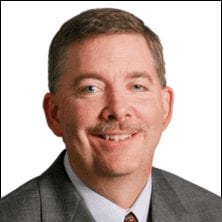
Mike Griswold serves as Vice President Analyst with Gartner’s Consumer Value Chain team, focusing on the retail supply chain. He is responsible for assisting supply leaders in understanding and implementing demand-driven supply chain principles that improve the performance of their supply chain. Mr. Griswold joined Gartner through the company’s acquisition of AMR. Previous roles include helping line-of-business users align corporate strategy with their supply chain process and technology initiatives. One recent study published by a team of Gartner analysts, including Mike Griswold is Retail Supply Chain Outlook 2019: Elevating the Consumer’s Shopping Experience. Mr. Griswold holds a BS in Business Management from Canisius College and an MBA from the Whittemore School of Business & Economics at the University of New Hampshire. Learn more about Gartner here: www.gartner.com
